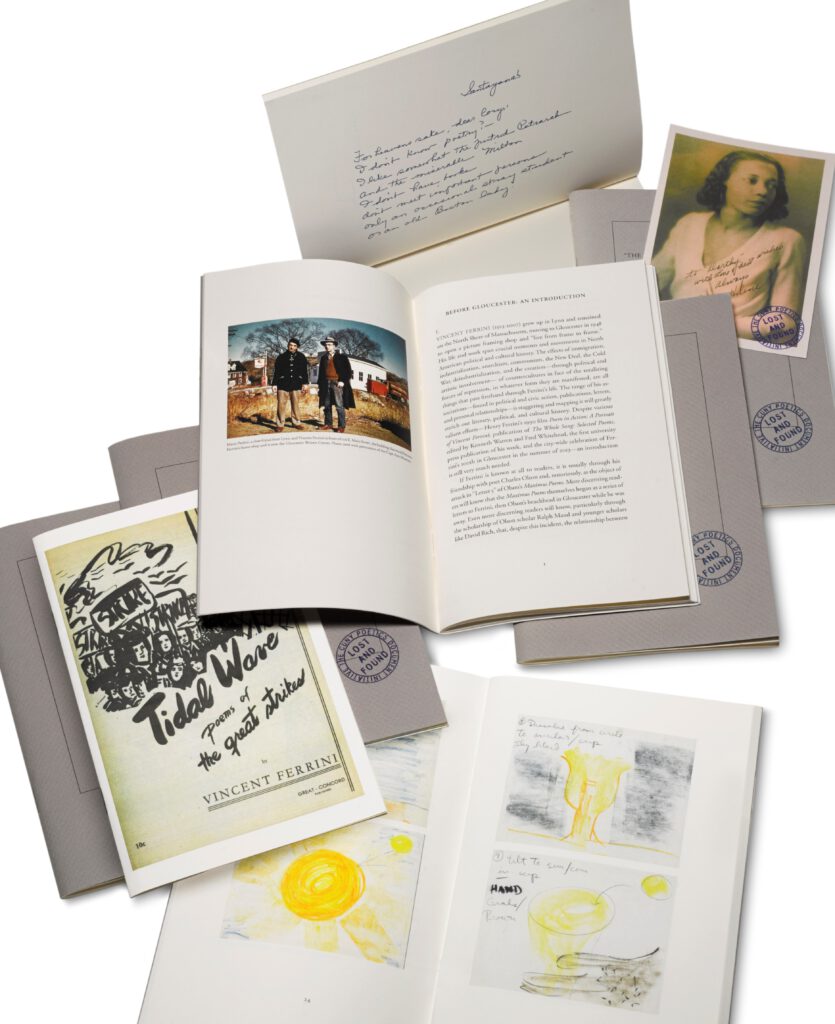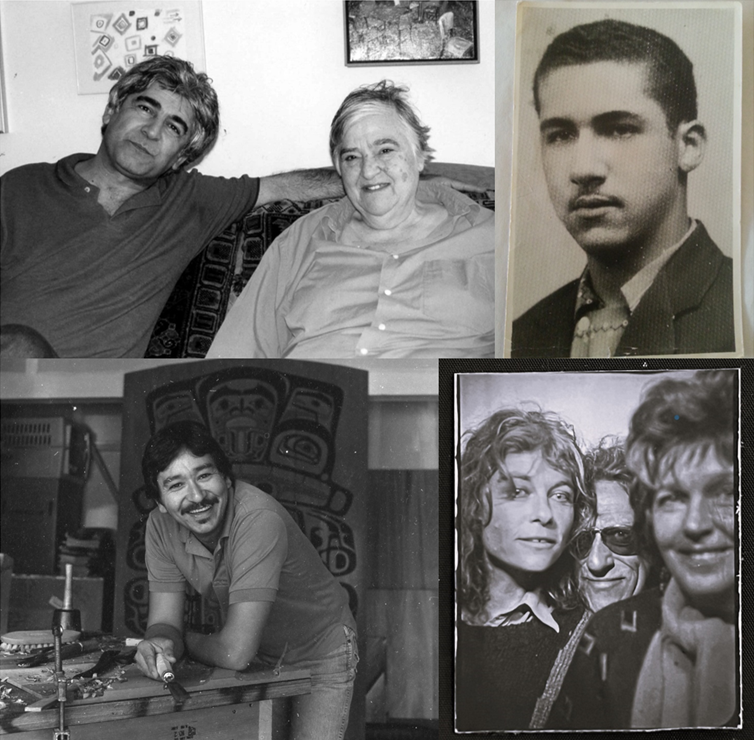Lost & Found Fellows Showcase: New Poetics and Archival Research Projects
Fri, Dec 8, 2023
6:30 PM–8:00 PM
Room 9205/9206, CUNY Graduate Center. Free and open to the public. Please register below.

Watch the video recording of this event here or below:
The following is from the wonderful introduction to this event and the GC student fellows work, which embraces the ethos of Lost & Found by L&F Faculty Mentor and Editor Megan Paslawski:
“A fun part about Lost & Found is that there’s just one rule: follow the person. Our guiding star Ammiel Alcalay has always suggested it as an antidote to stale ways of thinking about historical eras or schools of creativity. It often means relinquishing the scholarly impulse to make things—theories, papers, summaries—tidy and well-labeled. Instead, we have the joy of tracing unrecognized friendships between writers and finding ourselves in unexpected countries or, sometimes, languages.
Fittingly, each of the fellows have met the challenge to follow the person in unexpected and compelling ways. Their work has demonstrated time and time again how important these Lost & Found grants have been to students’ ability to begin thinking in serious and productive ways about the large-scale projects they’ll be expected to accomplish in their careers. They’re going to tell you more about their work in a moment, but first I just want to underscore the ways in which Lost & Found’s person-first ethos also developed between the fellows during our meetings this year. They’ve discussed connections between their analyses and shared advice on everything from writing from a position of love as an academic to getting every last second of possible archival time from their grants.”
—L&F Faculty Mentor & Editor Megan Paslawski
Lost & Found: The CUNY Poetics Document Initiative GC doctoral student fellows presented their archival research projects on poets, writers, artists, and musicians whose contributions to New American Poetry remain understudied, including their political, pedagogical, and activist commitments, deepening and complicating common understandings of past historical and cultural moments. Following the methodical model of “follow the person,” watch our 2023 L&F Fellows to learn more about their archival journeys and adventures researching such figures and subjects as: Nuyorican Poets Cafe founders and unpublished works of Lois Elaine Griffith, Miguel Algarín, and Pedro Pietri; Theresa Hak Kyung Cha’s literary discourses; Stuart Hall’s collaborative pedagogy; Kevin Killian’s correspondence with Samuel Delany; Adrian Piper’s early performances; Susan Weil’s poemumbles (unique visual poems); Arthur Russell’s queer utopian poetics; Albert Glover’s Curriculum of the Soul, and more.
The event was introduced by L&F Faculty Mentors and Editors Zohra Saed and Megan Paslawski. The fellows’ presentations were followed by a Q&A session. Learn more about the fellows and their work below, and see photos from the Fellows Showcase at the bottom of the page.
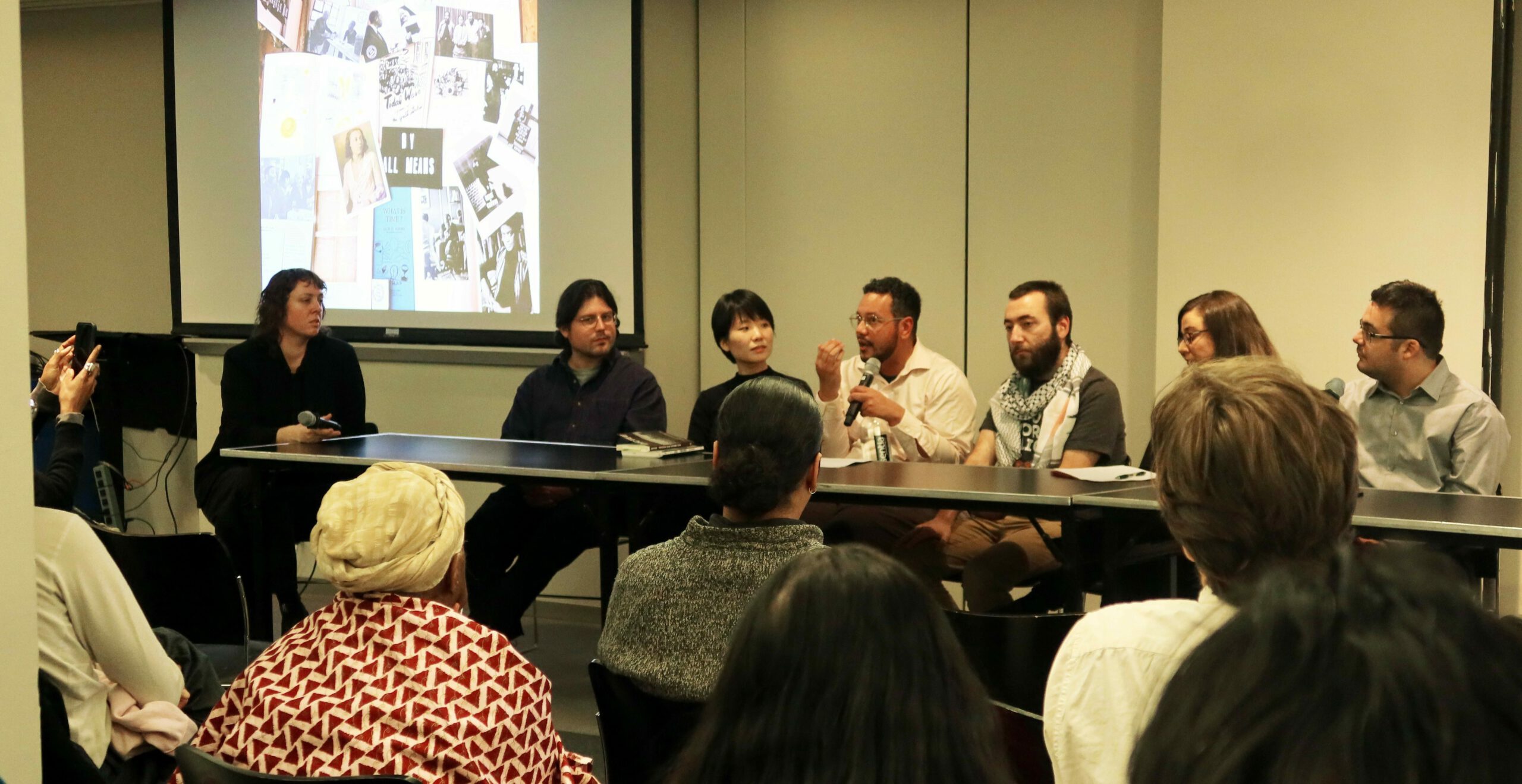
2023 Lost & Found CUNY GC Archival Research Fellows and Projects
Onur Ayaz — Albert Glover
This project explores the network of poets, educators, and writers of Albert Glover, co-editor to Curriculum of the Soul. I factor into this project the history of the University of Buffalo, a place that houses not only the papers of Glover but serves as a nexus for poetry and poetics in America, as well as a hub for teaching and education. I hope therefore to present these materials in a public-facing manner as well as theorize on ways we can model teaching practices through poetry, especially through what I term literary correspondences—the relationships Glover had with others like Charles Olson, John Clarke, Diane Di Prima, and Ralph Maud in the written record.
Ju Ly Ban —Theresa Hak Kyung Cha
What does it mean to be an audience? What drives me to read you, hear you, and, eventually, write you? This project traces Theresa Hak Kyung Cha’s Archives Backward—from 1993 New York to 1976 Berkeley, from Dictee to her early letter projects. On that archive journey filled with letters and literary kinship, Ju Ly gleans and weaves the words of Cha’s audiences: the words from three panelists at the 1993 Whitney Symposium (Judith Barry, bell hooks, and Yong Soon Min) and from members of the Icelandic initiative Gallery Lóa (Kees Visser, Rivin Fannberg, and Kristinn Guðbrandur Harðarson).
Lucien Baskin — Stuart Hall
In this project I am interested in turning to the archive of Stuart Hall’s life to understand him from different perspectives through the lens of his collaborative work. In doing so, I hope to return Hall to the contexts he was working in, a critical act considering that Hall was a socialist intellectual concerned with the pressing issues of the conjuncture in which he lived, worked, taught, and organized, as well as wrote and theorized.
In a short pamphlet focused on Hall’s collaborative pedagogy, I will bring together materials such as his syllabi from the Centre for Contemporary Cultural Studies where he led a seminar on newspaper coverage of the 1969 student occupation of the University of Birmingham as it was taking place and a brilliant statement he gave on the BBC in defense of teaching Marxist theory to working adults in response to an inquiry by the Thatcher government accusing Hall and his colleagues of creating curricular materials with a Marxist bias, as well as a series of short pieces written about three of his mentors and comrades (Walter Rodney, Raymond Williams, and CLR James) on being a socialist intellectual.
Joseph Cáceres — Lois Elaine Griffith
This project proposes to continue to explore the understudied work of Nuyorican Poets Cafe’s founders. Specifically, the unpublished works of Lois Elaine Griffith, Miguel Algarín, and Pedro Pietri found in the archive. Emphasis will be placed on three Lost & Found issues revolving around Griffith’s life, work, and brilliant cultural significance (vis-à-vis her role as Keeper of the Nuyorican Poets Cafe Archive); an avant-garde American artist whose presence in scholarship revolving around the Nuyorican Poets Cafe, Nuyorican Arts Movement, Black Arts Movement, and American letters is virtually nonexistent.
Kaley Ciluffo —Toni Cade Bambara, June Jordan, and Audre Lorde teaching at CUNY
Like most great things, it began with friendship, imbued with an ethos of matriarchy, creating the radical possibilities that emerged from three women’s lives—Toni Cade Bambara, June Jordan, and Audre Lorde—while teaching at the City University of New York. With a spirit of radical hope, this project embraces possibilities surfacing from the combination matriarchy and poetry, inviting and challenging us to broadly consider: (i) what stories do Bambara, Jordan, and Lorde, teaching at CUNY, and Shange, studying at Barnard, have to share with each other? (ii) What might we learn from these women about the possibilities for a new kind of University (iii) and the ways in which their works embody, discuss, and think about activism, community, and healing?
Addy Malinowski — Arthur Russell
In “Arthur Russell’s Queer Utopian Poetics,” Addy Malinowski focuses on the songwriter, cellist, and disco producer’s “folk” songs as an untapped repository of queer love, the pastoral, and utopian longing. Russell’s sense of futurity was very much inspired by the relationships inherent to place and geographic locale: the Iowa corn of his birthplace, the Lower East Side of the 70’s and 80’s, and the spirituality of the Pacific coast. Further, his compositions reflect and were informed by the concerns of experimental poets of his time which he collaborated with, including Allen Ginsberg and Jackson Mac Low.
Noelle Mapes — History of 1960s experiments on community control of NY schools
In the late 60s, the Ford Foundation funded community control experiments of schools in New York City in three districts: Harlem, Ocean Hill-Brownsville, and Two Bridges. This project disrupts the narrative that community control was contentious solely along Black and white lines and highlights the least talked about district attempting community control of schools: Two Bridges on the Lower East Side. With its international population during a time of burgeoning art and community activism, this district responded very differently to the democratic experiment of community control. For this project Noelle Mapes will travel to the Rockefeller Archive Center in Sleepy Hollow, New York to uncover Ford Foundation files and illuminate how this artistic, racially diverse enclave enacted community control of schools.
Vallerie Matos — Nuyorican Poets Cafe founders
This Lost and Found project proposes to digitize, transcribe, and prepare a sound collection of a private archive belonging to Lois Elaine Griffith, the last surviving founder of the Nuyorican Poets Cafe. These recordings include conversations with Pedro Pietri, Amiri Baraka, Marcel Christian, Arlene Gottfried, Miguel Algarín, and more.
Ernesto Mendoza — Women poets of Pan-Americanism
Ernesto’s project, Women poets of Pan-Americanism during the First World War, is a labor of rescue and dissemination of poems written by American women, modernists, and Pan-Americanists, such as Muna Lee, Edna St. Vincent Millay, Jessie B. Rittenhouse, Amy Lawrence Lowell, and Sara Teasdale in the Pan American Poetry magazine —a literary supplement of the Pan-American integration magazine Pan American Magazine, during the final years of World War I (1917-1918)—. The project seeks to expose the participation of these poets in the construction of a Pan-American identity through intellectual and literary networks between the United States and Latin America. This identity, which was woven through poetry, was part of political activity in the face of the peninsular Hispanicism that was being installed in the United States in those years.
Rebecca Teich — Samuel Delany/Kevin Killian
Kevin Killian’s papers at the Beinecke Library contain his correspondence with fellow writer Samuel Delany; spanning from 1987 to 1995, these letters provide a unique window into cultural production during the years of peak recorded death due to HIV/AIDS related complications and government negligence in the United States. Often invoked together but infrequently put in direct conversation, this project aims to situate these figures integral to 20th century queer avant garde literary movements as interlocutors in order to illuminate their contributions to formal narrative experimentation grounded in marginalized social realities of sexual outlaws. By situating these writers relationally, this project hopes to offer insight into Killian and New Narrative’s relationship to science fiction and fabulation, into New Narrative’s impact on Delany’s understanding of life writing and narrative experimentation, and into these writer’s convergent and divergent ideas around politics, aesthetics, and queer literary community contemporaneous to an epidemic.
Vanessa Troiano — Susan Weil
Vanessa’s project for the Lost & Found: CUNY Poetics Document Initiative explores Susan Weil’s nearly 40-year production of daily ‘poemumbles’–the artist’s self-coined term for her unique visual poems. Intrinsic to Weil’s poemumble practice is her dedication to mailing handmade copies to her confidants, including Vincent FitzGerald, a New York-based publisher of artist’s books, and Zahra Partovi, an Iranian-born bookbinder, filmmaker, and translator. With Lost & Found’s support, Vanessa has conducted interviews and archival research to investigate Weil, FitzGerald, and Partovi’s intermedia creations and enduring artistic exchange.
Jeff Voss — Adrian Piper
This summer I plan on studying the phenomenon of finding Adrian Piper’s early performances—particularly The Mythic Being—funny. Funny as in strange, funny as in humorous, funny as in aggressive. Though this project is guided by many curiosities and questions, its main preoccupation might be the hunch that what we call “humor” (or comedy, or being funny) has been predominantly used to manipulate the female body, in image and in flesh, in an ongoing attempt to secure and reproduce racial capitalist-patriarchal social relations. Therefore, what are we to make of Piper’s claim that she found a “paradoxical sense of freedom” dragging as the what s/he came to call The Mythic Being? The Mythic Being is funny as he is disturbing. Precisely because the performances are so ambivalent, as Piper dangerously plays the shared edges between fear and desire, revulsion and attraction, The Mythic Being asks, What’s so funny? It’s a question, it’s a threat.
The 2023 Lost & Found: The CUNY Poetics Document Initiative Archival Research Grants and Fellowships were made possible by generous support from the Early Research Initiative at the CUNY Graduate Center, and co-sponsored by The Office of the Provost, and with generous support from Engaging the Senses Foundation. The 2024 L&F Grants and Fellowships are NOW OPEN for CUNY GC students to apply—click here for more info and to apply!
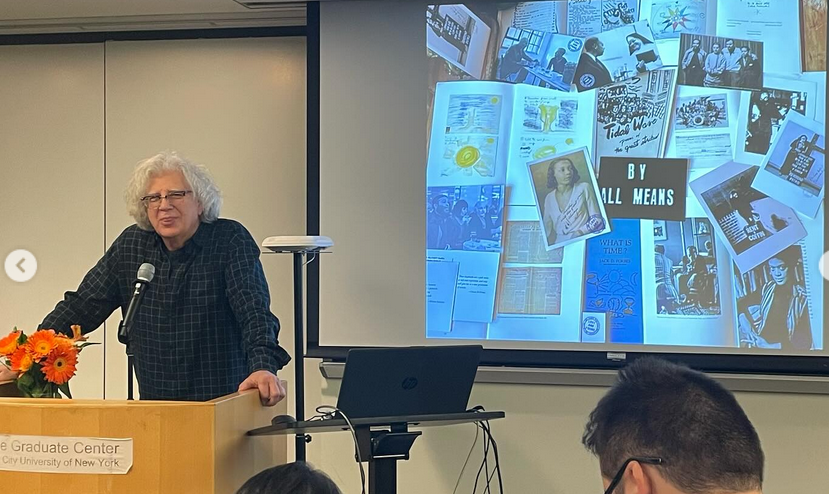
Lost & Found General Editor Ammiel Alcalay introducing our Fellows Showcase at the CUNY GC. Photo by Vanessa S. Troiano.
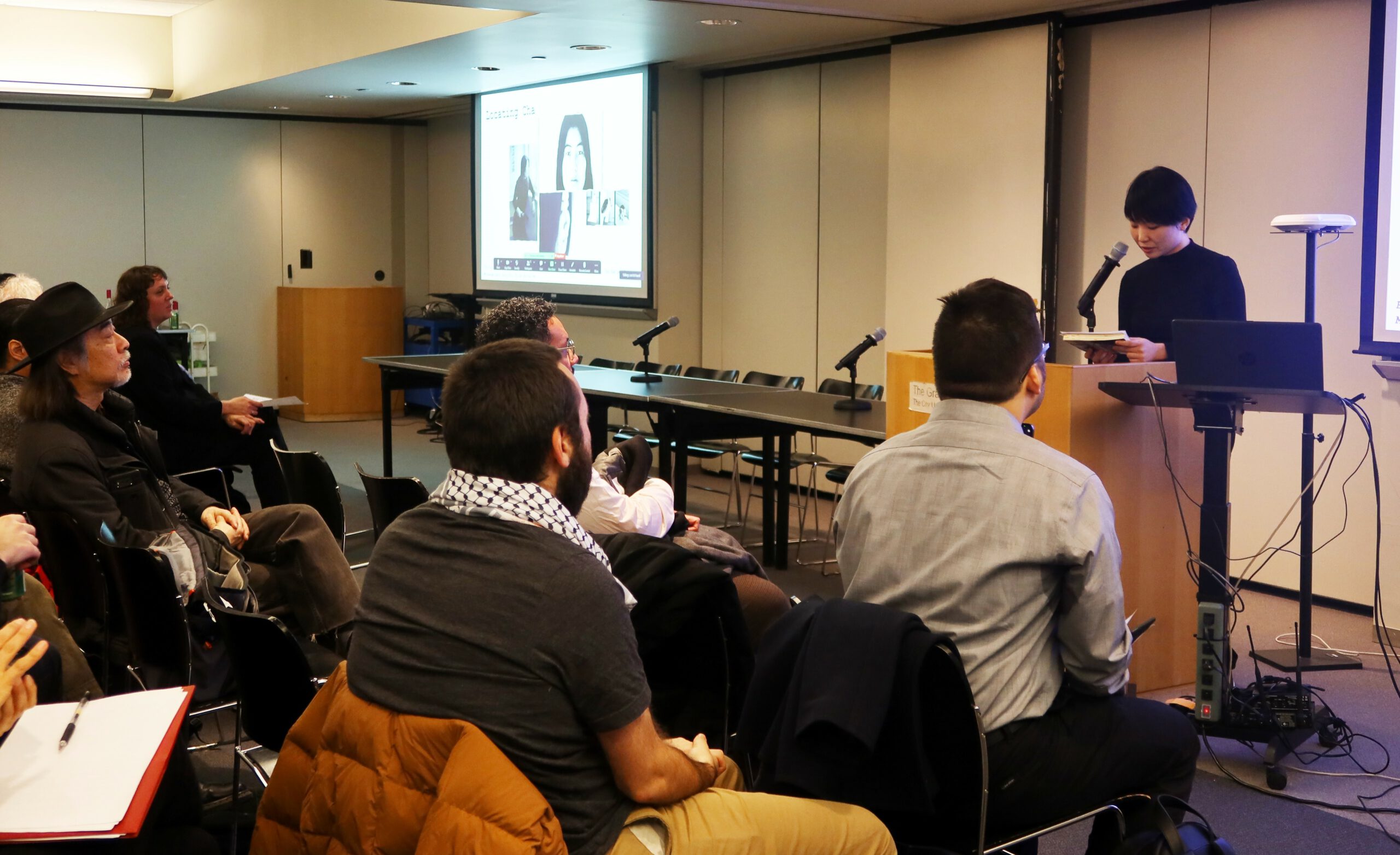
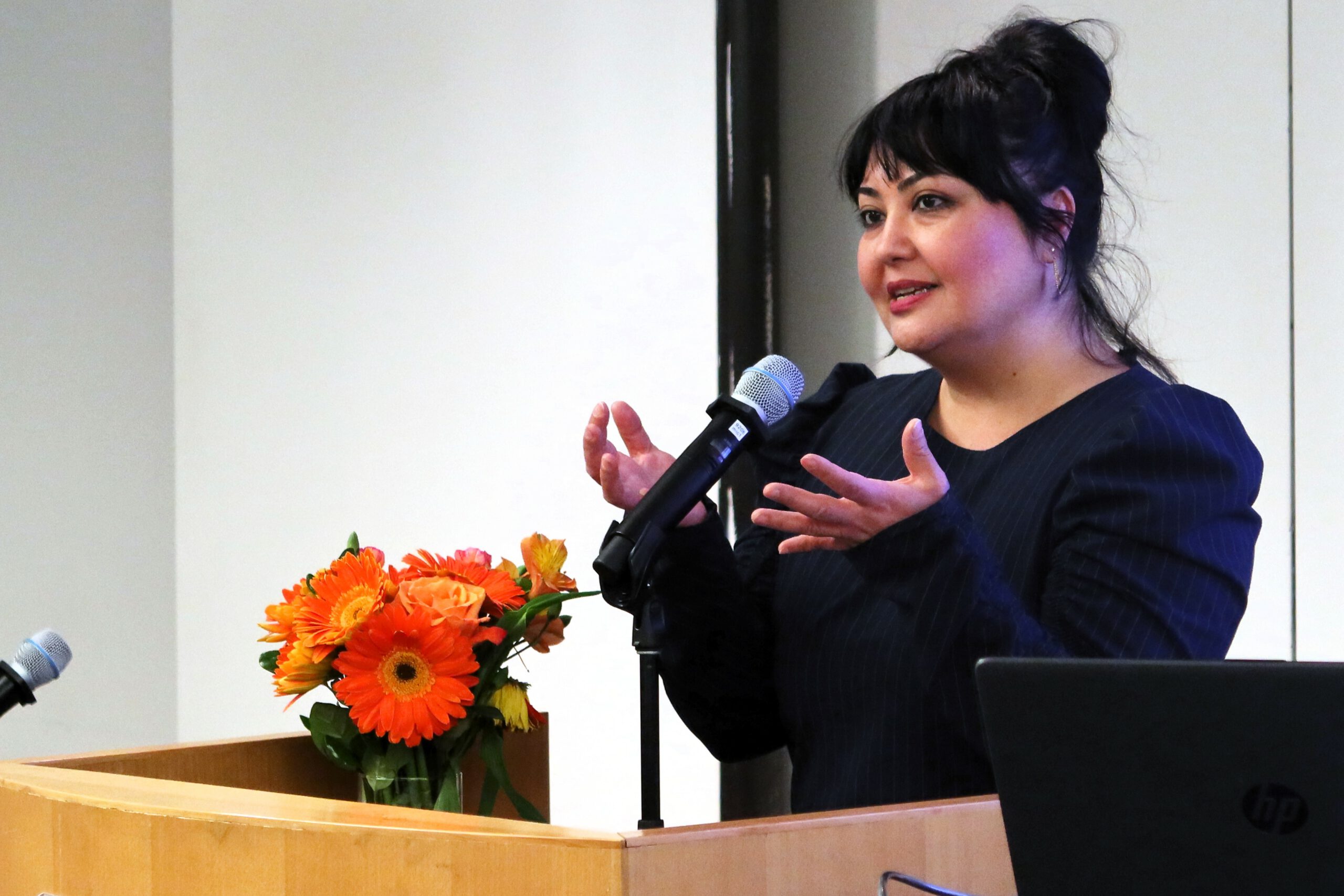
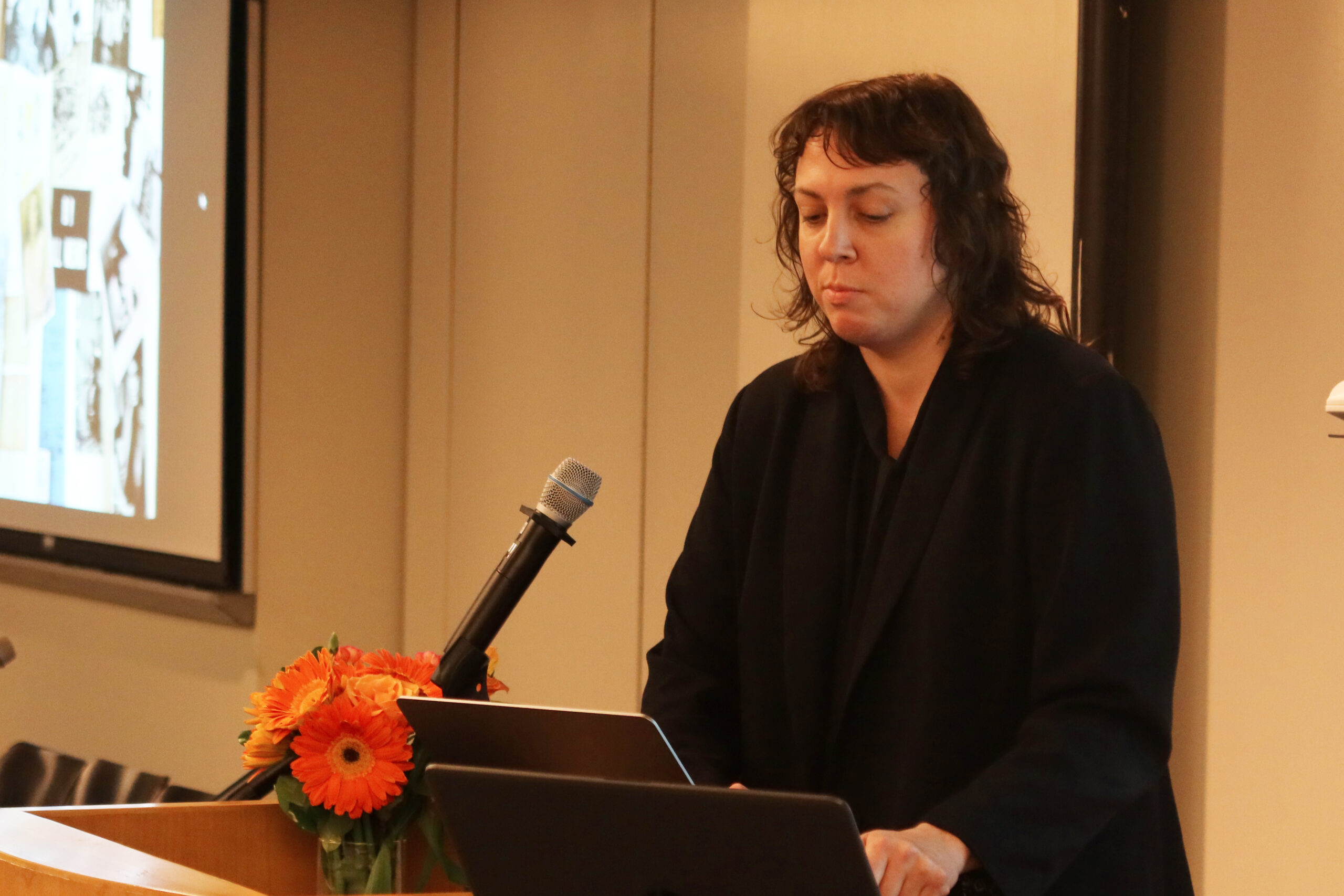
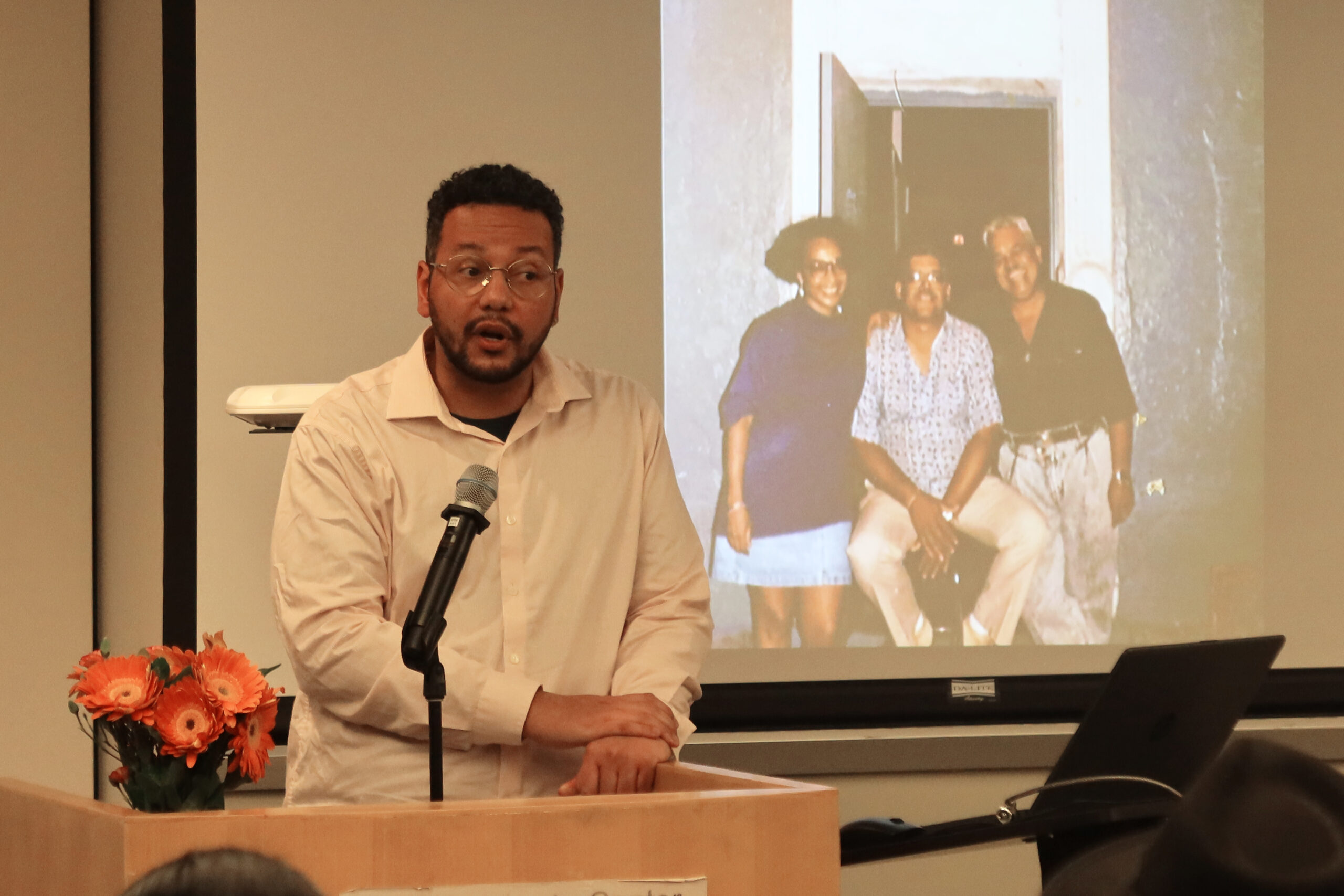
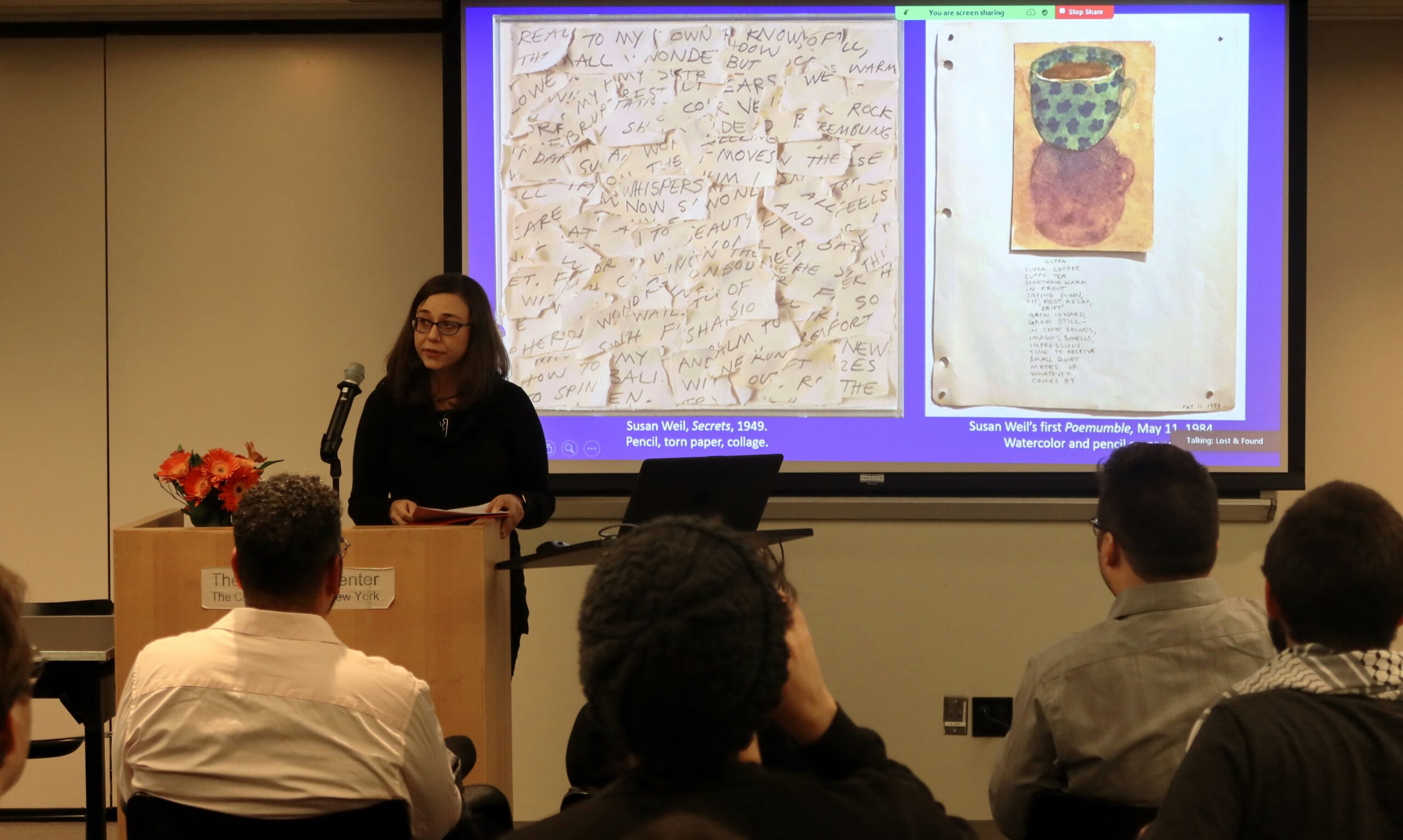
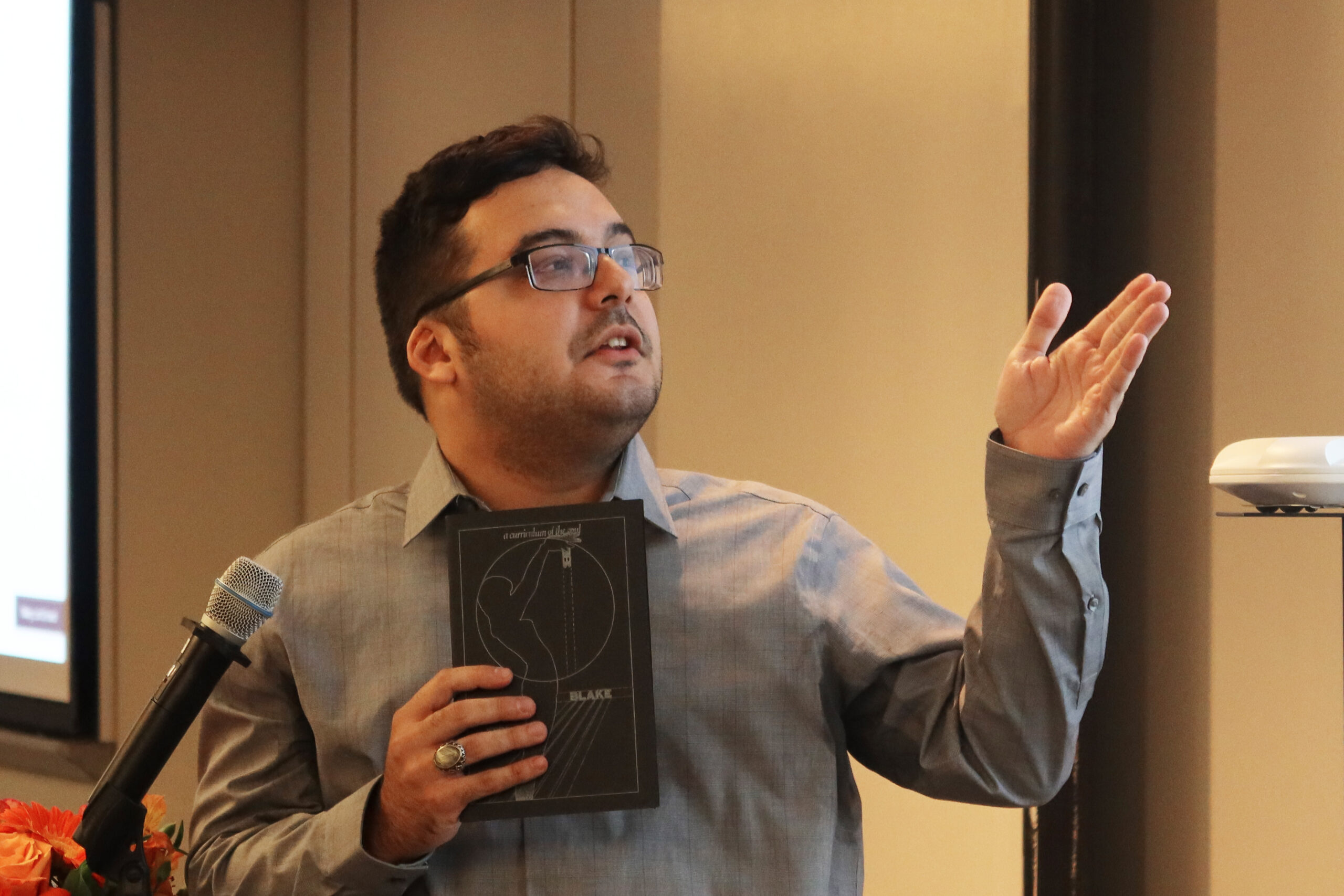
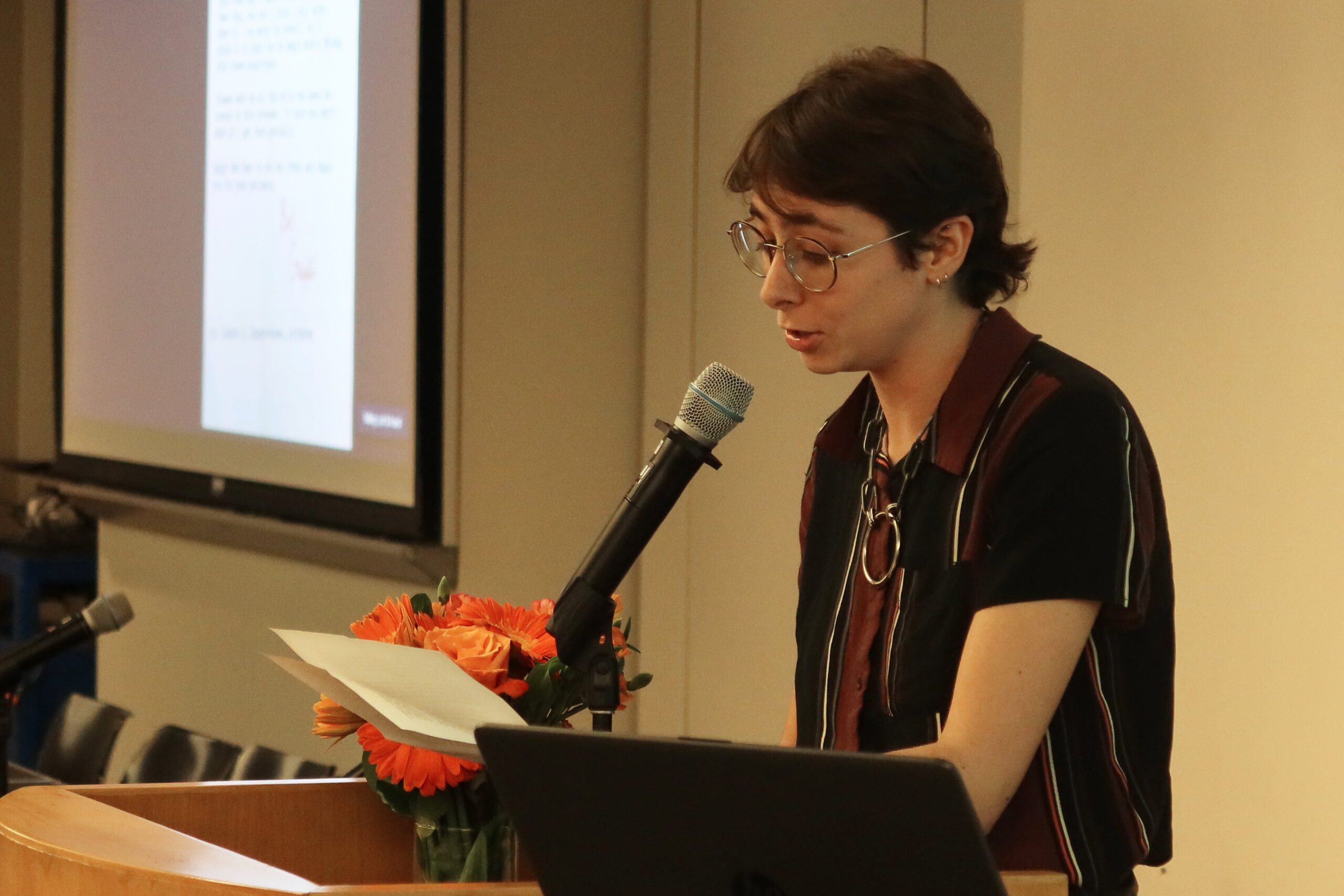
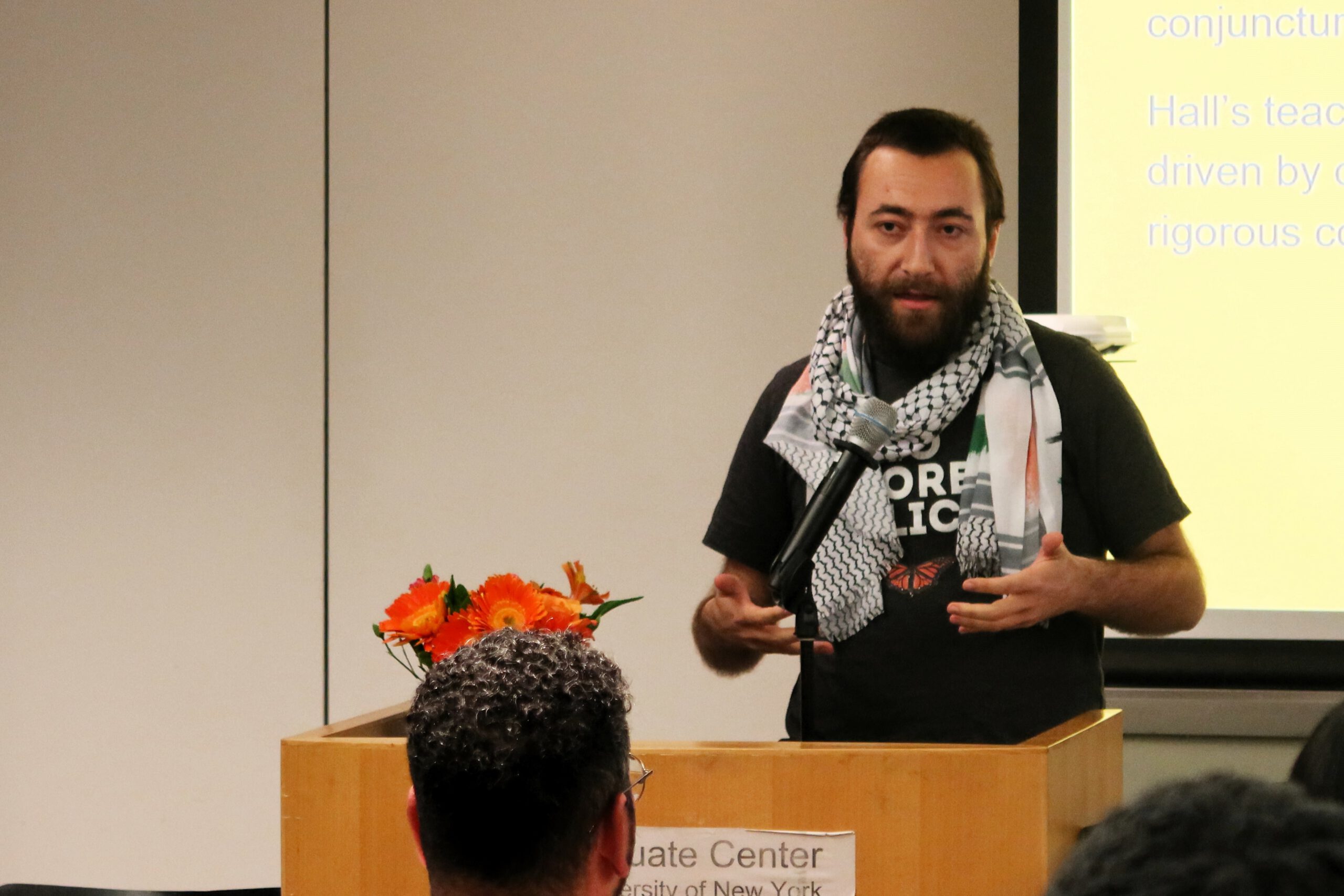
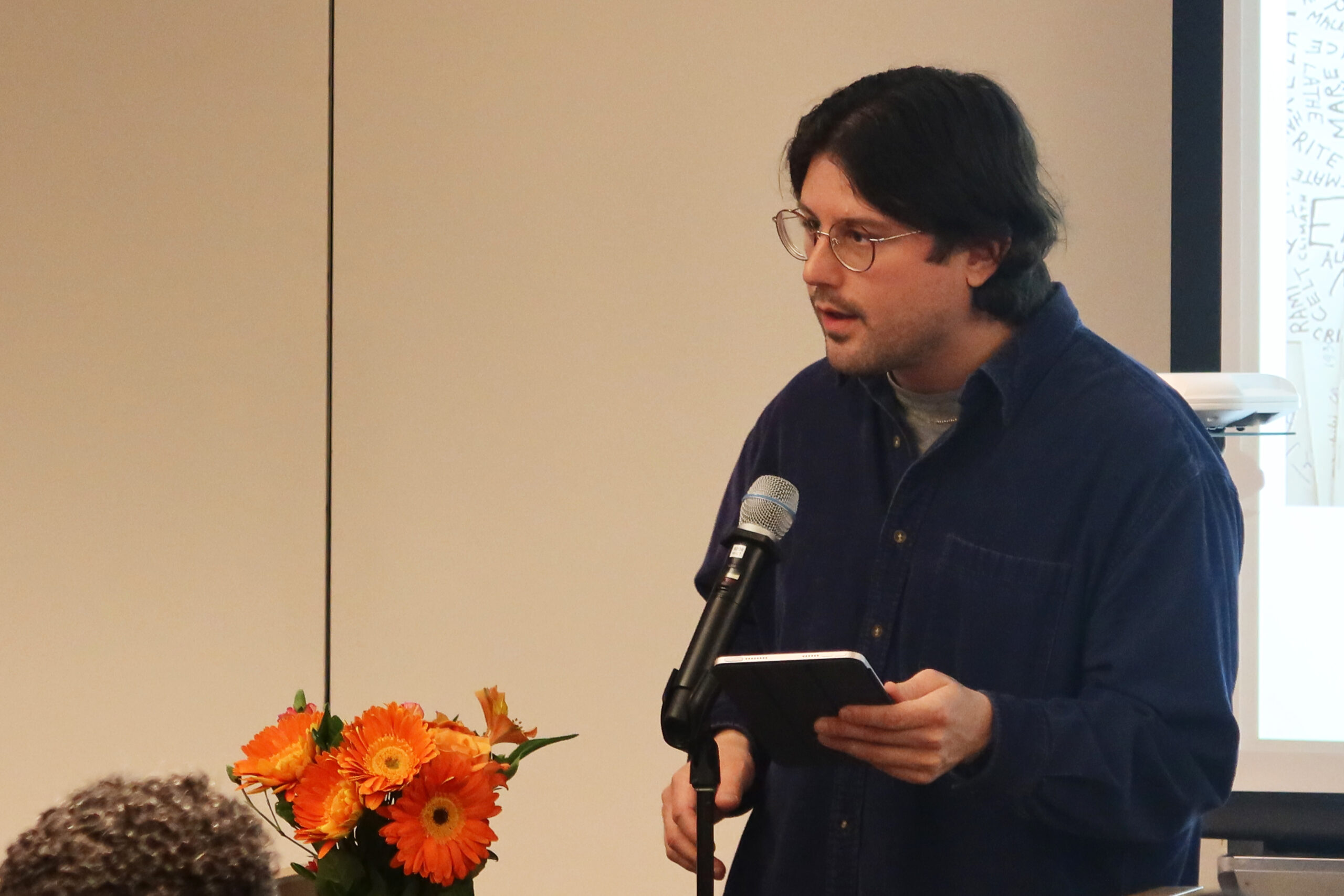
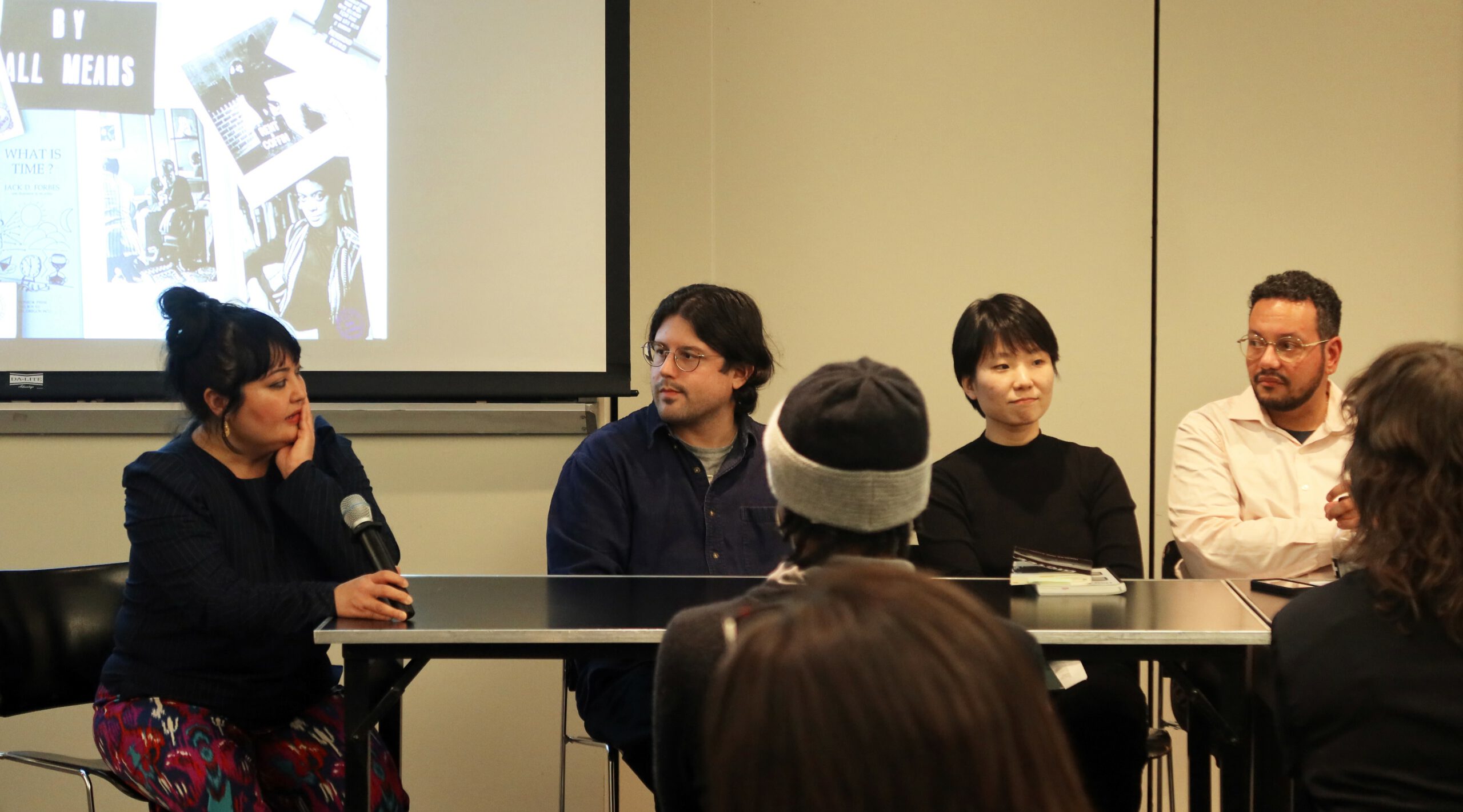
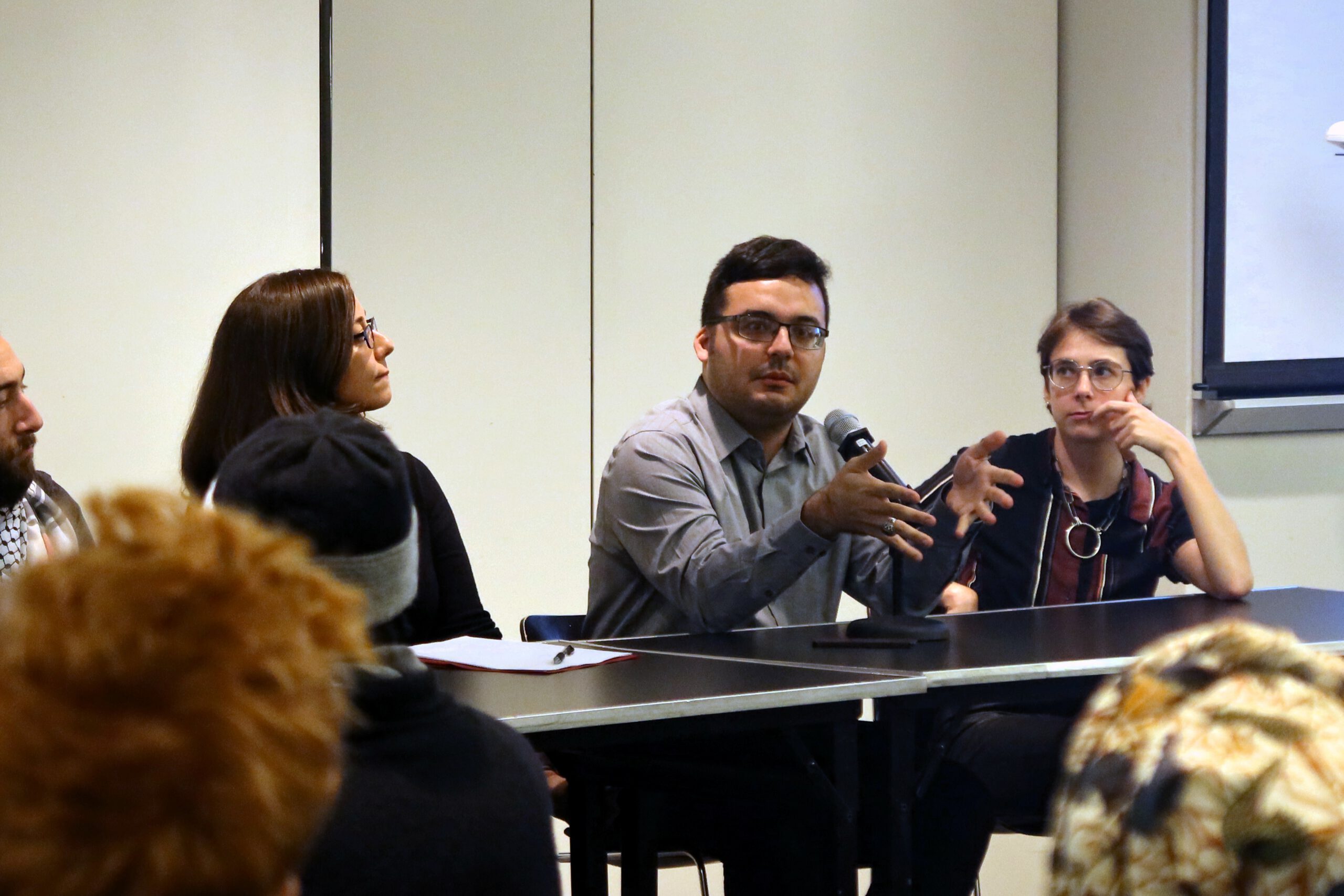
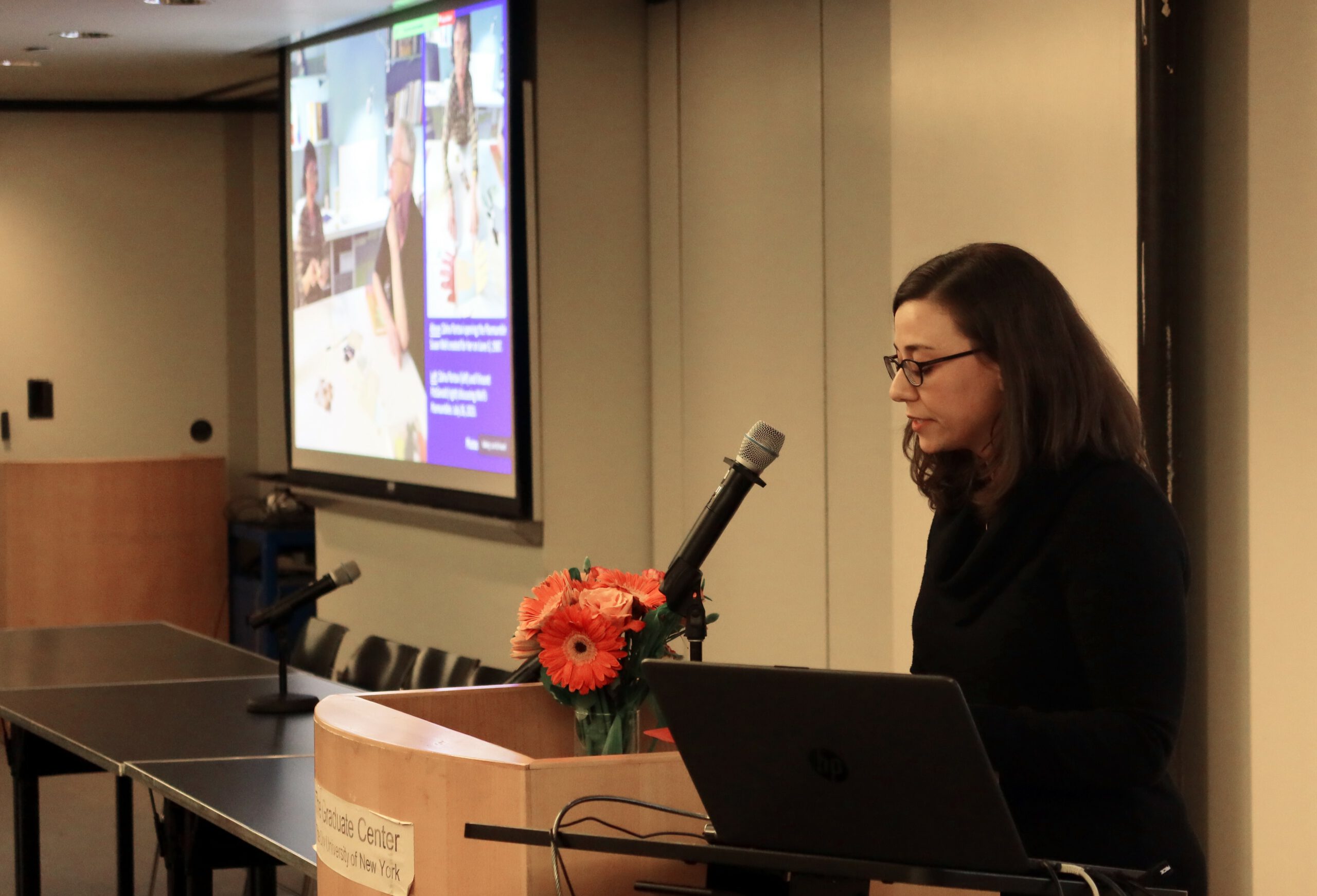

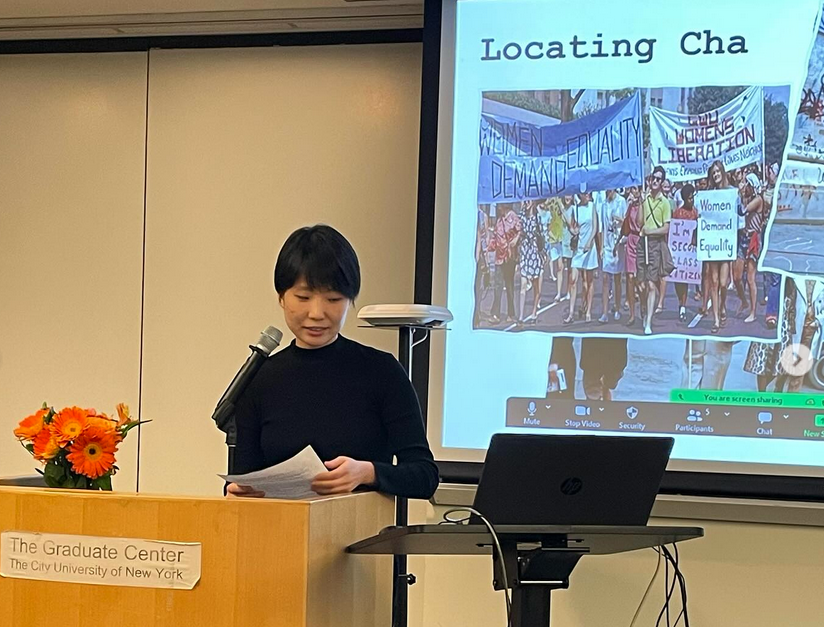
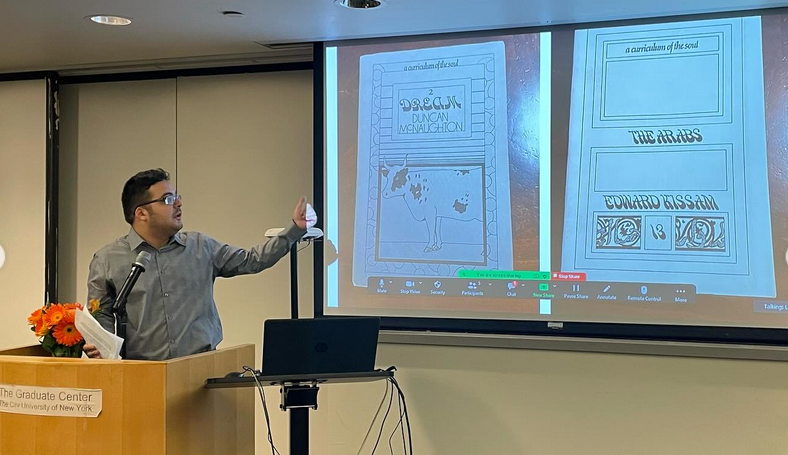
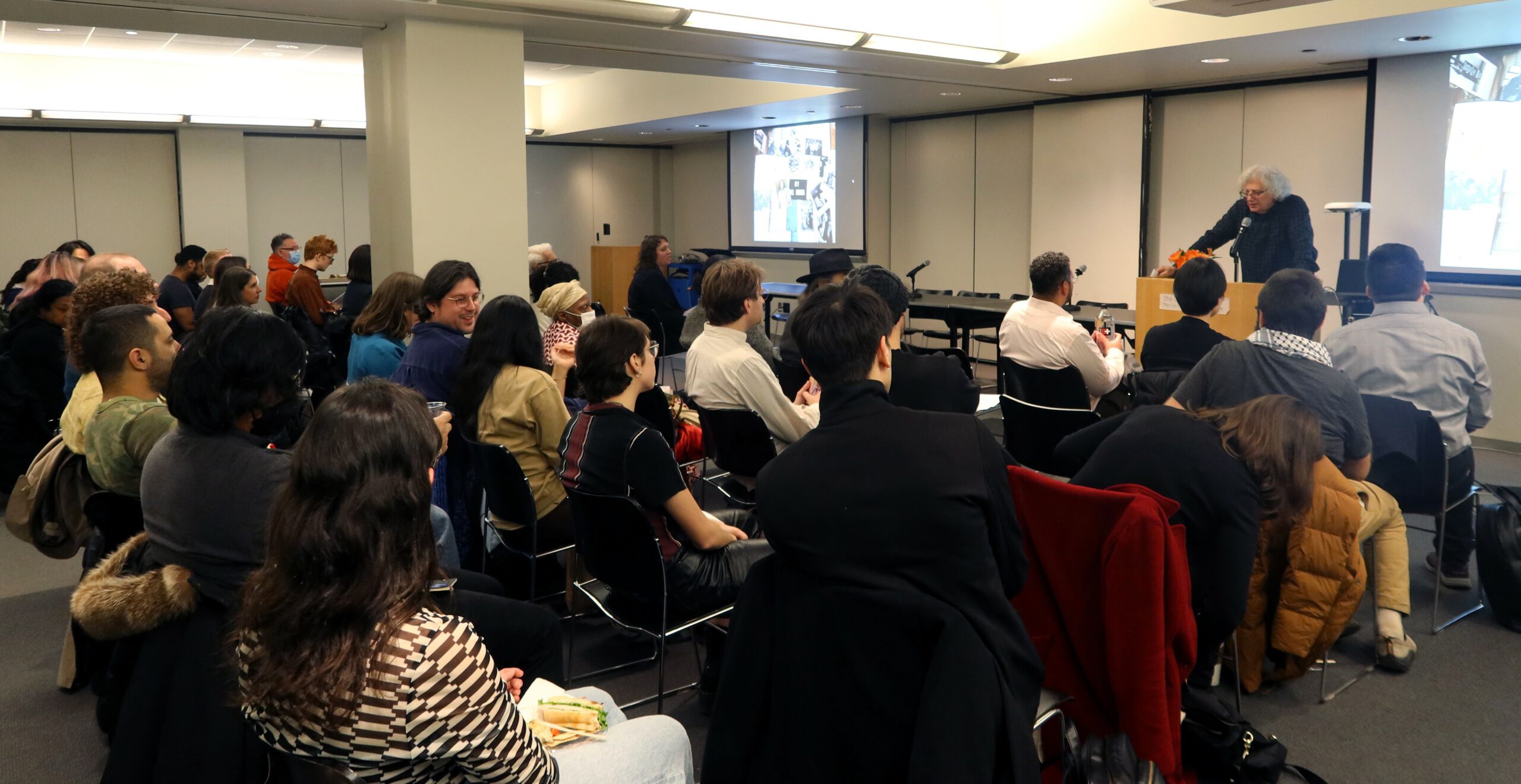
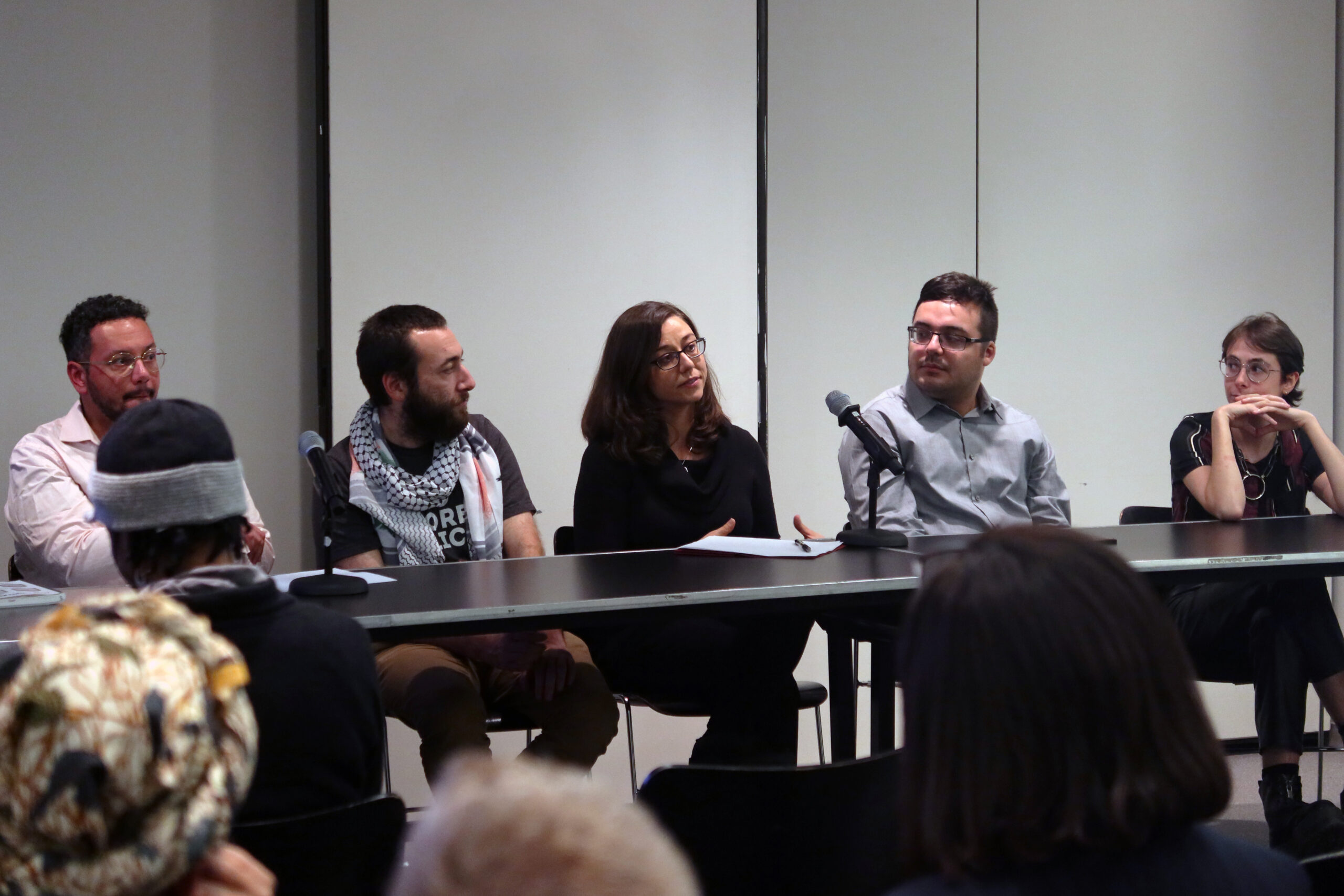
Lost & Found Fellows and Faculty Mentors
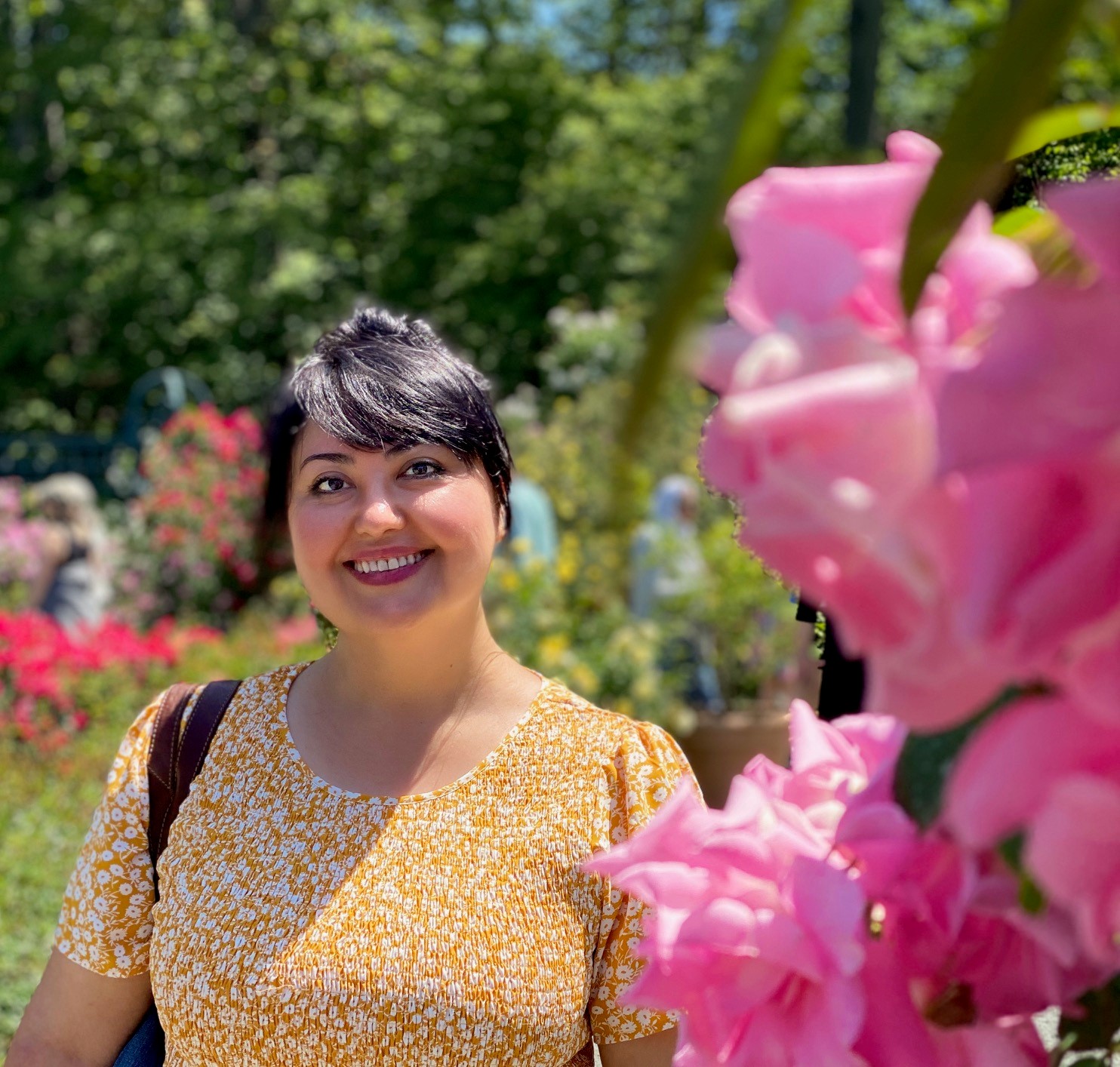
Zohra Saed
Lost & Found Faculty Editor
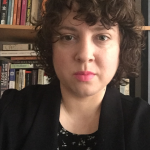
Megan Paslawski
Lost & Found Faculty Editor
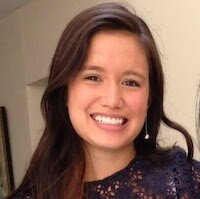
Noelle Mapes
Lost & Found Archival Research Fellow
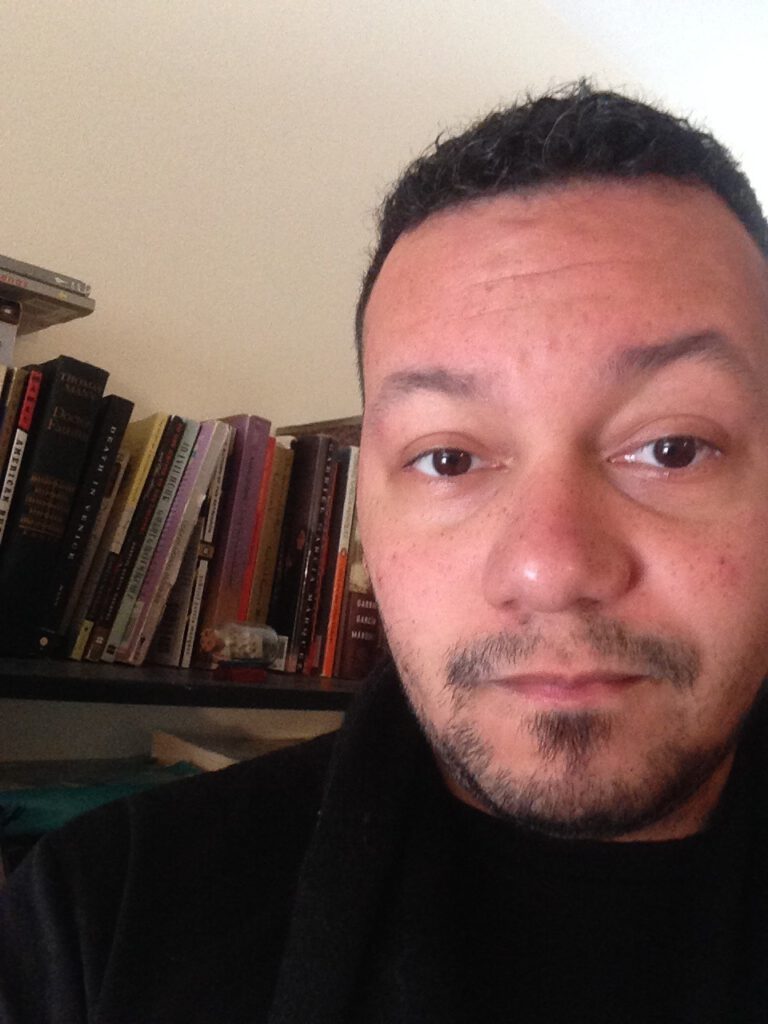
Joseph Cáceres
Lost & Found Archival Research Fellow
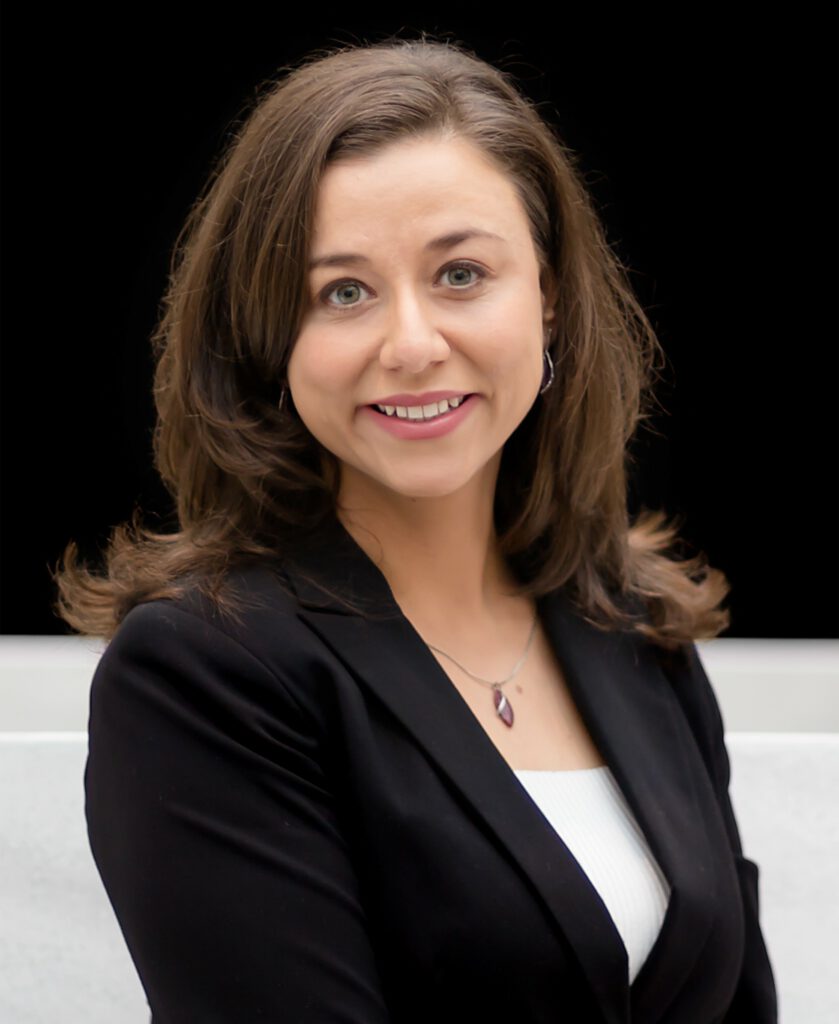
Vanessa S. Troiano
Lost & Found Archival Research Fellow
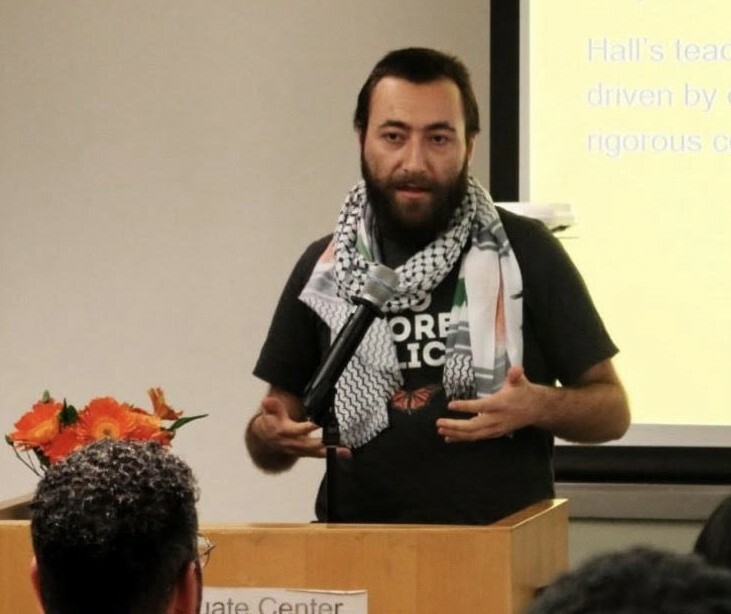
Lucien Baskin
Lost & Found Archival Research Fellow
ERI/PS2 Public Research Fellow
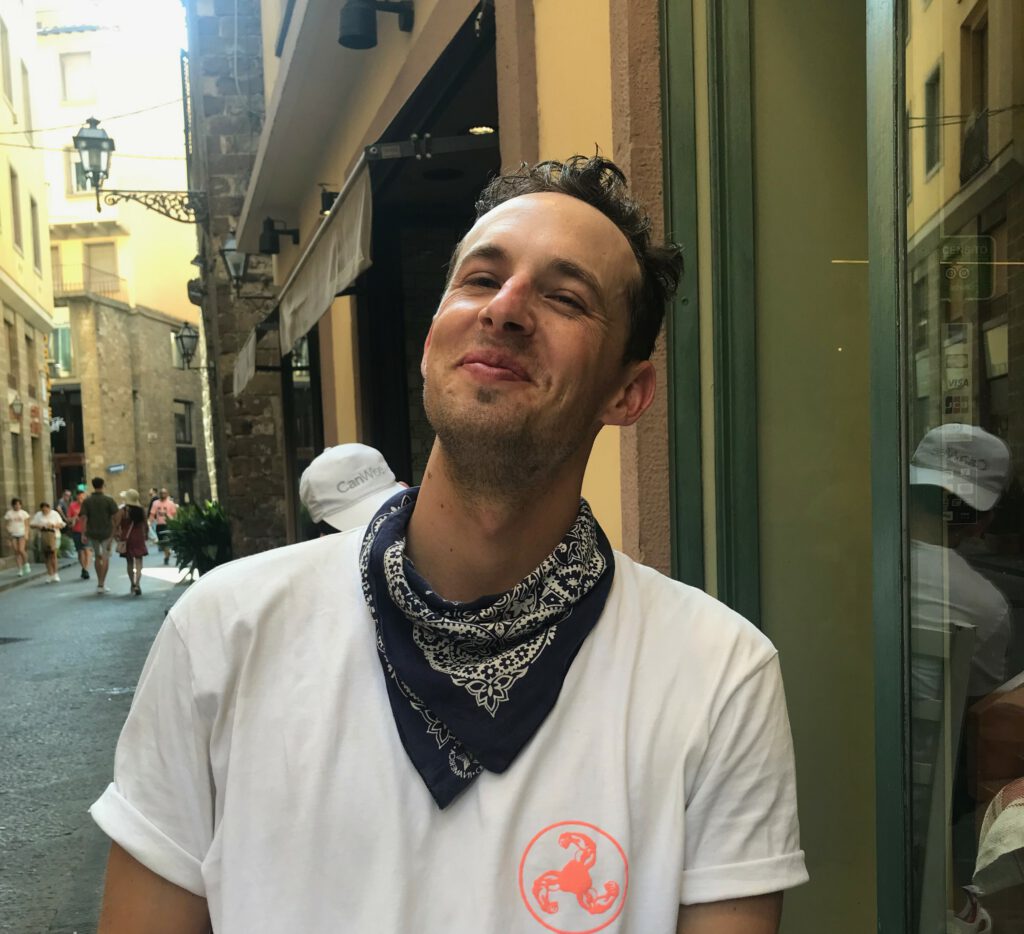
Jeff Voss
Lost & Found Archival Research Fellow
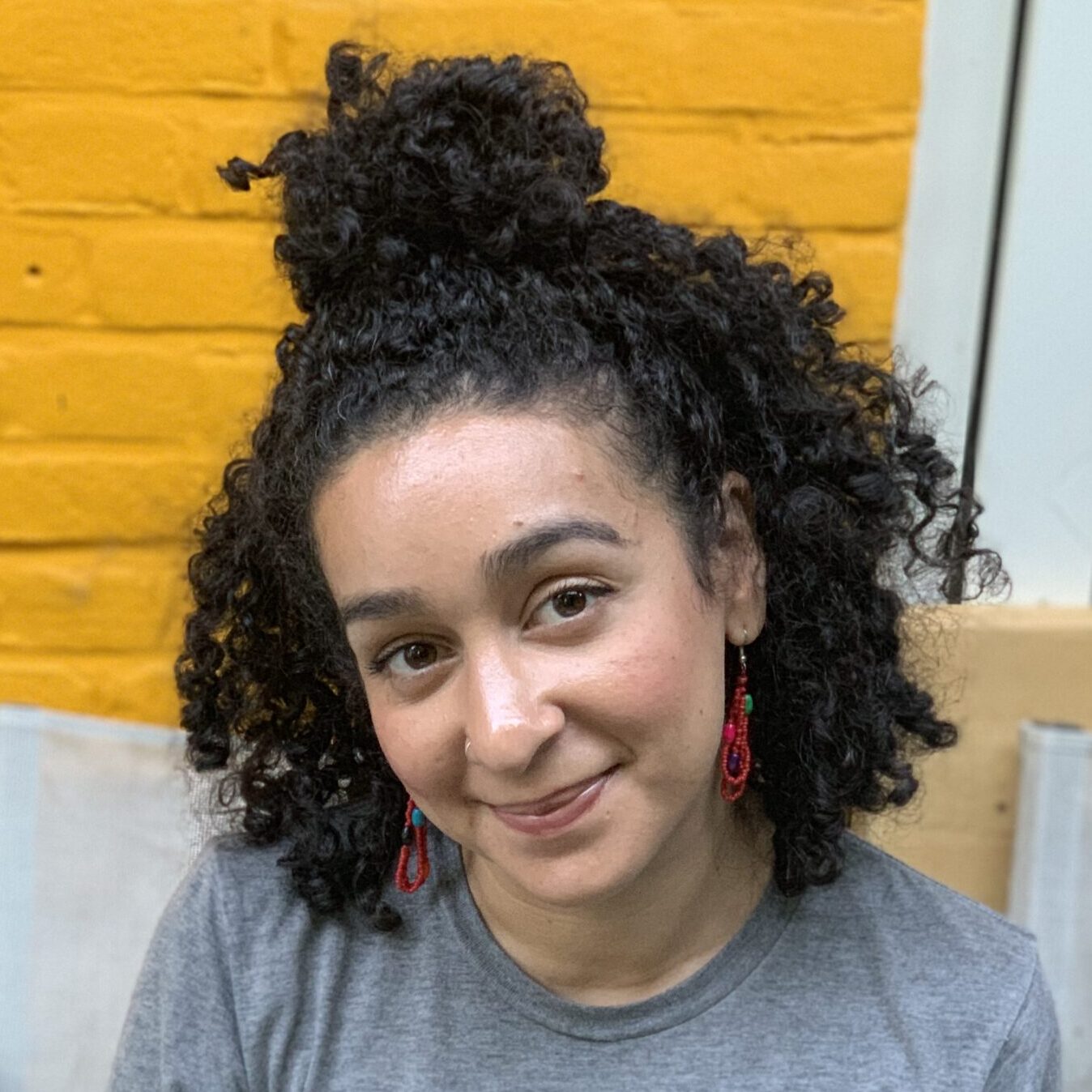
Vallerie Matos
Lost & Found Archival Research Fellow

Kaley Ciluffo
Lost & Found Archival Research Fellow
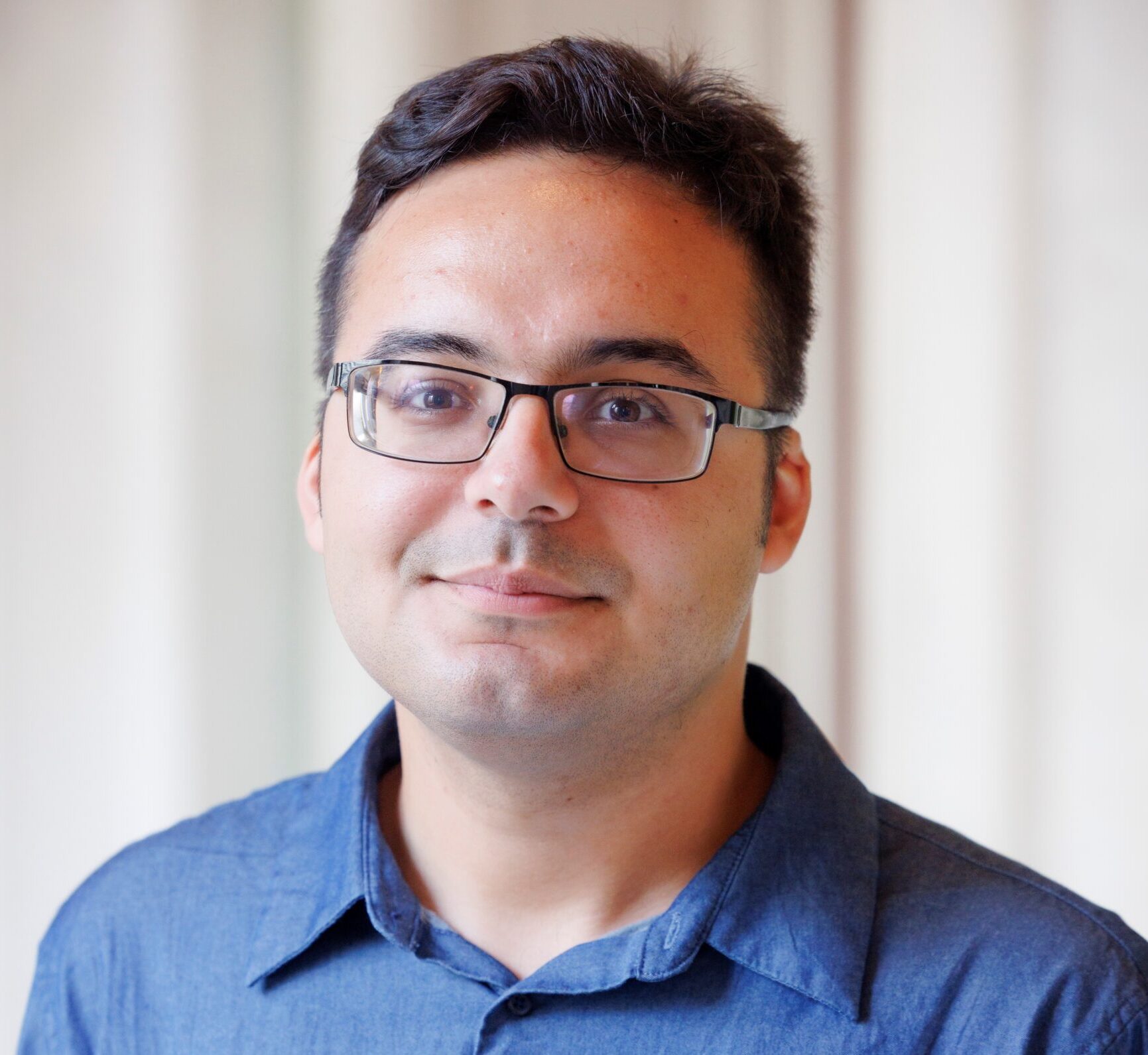
Onur Ayaz
Lost & Found Archival Research Fellow
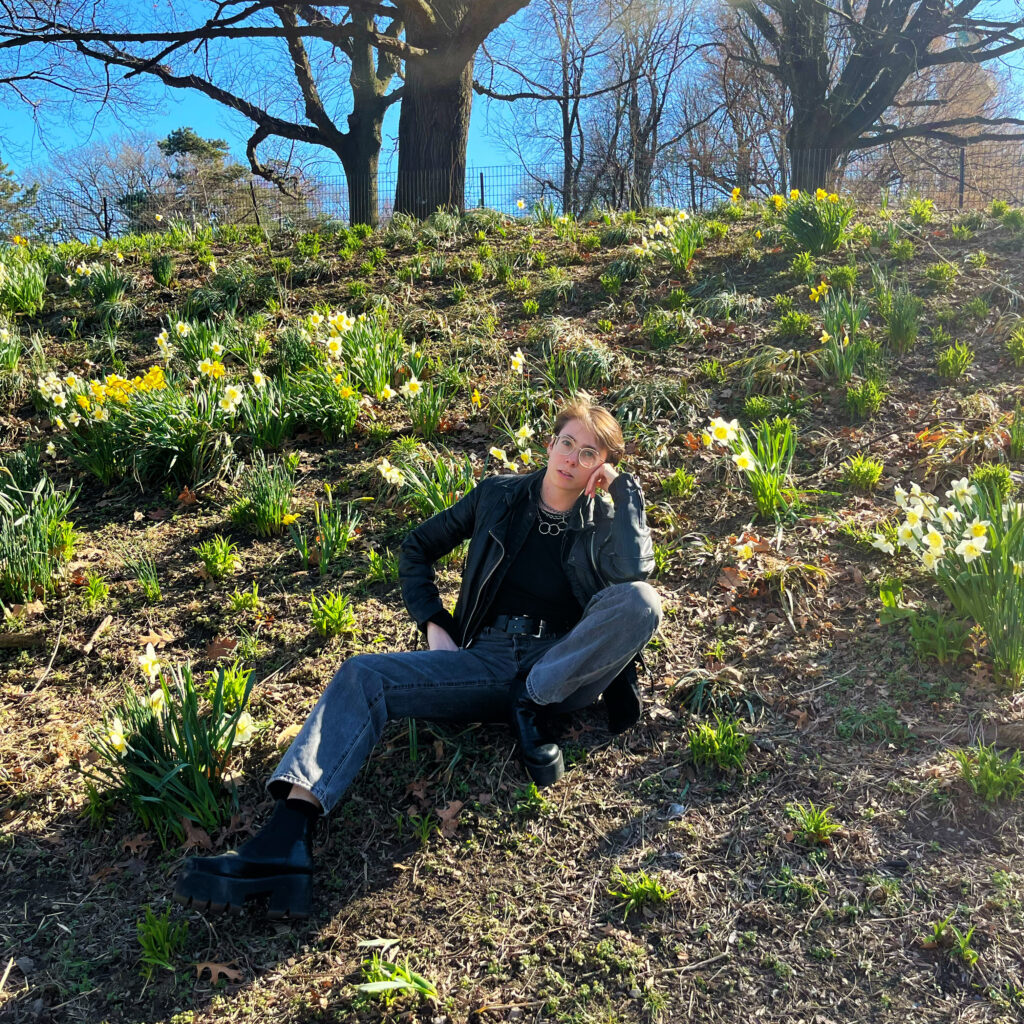
Rebecca Teich
Lost & Found Archival Research Fellow
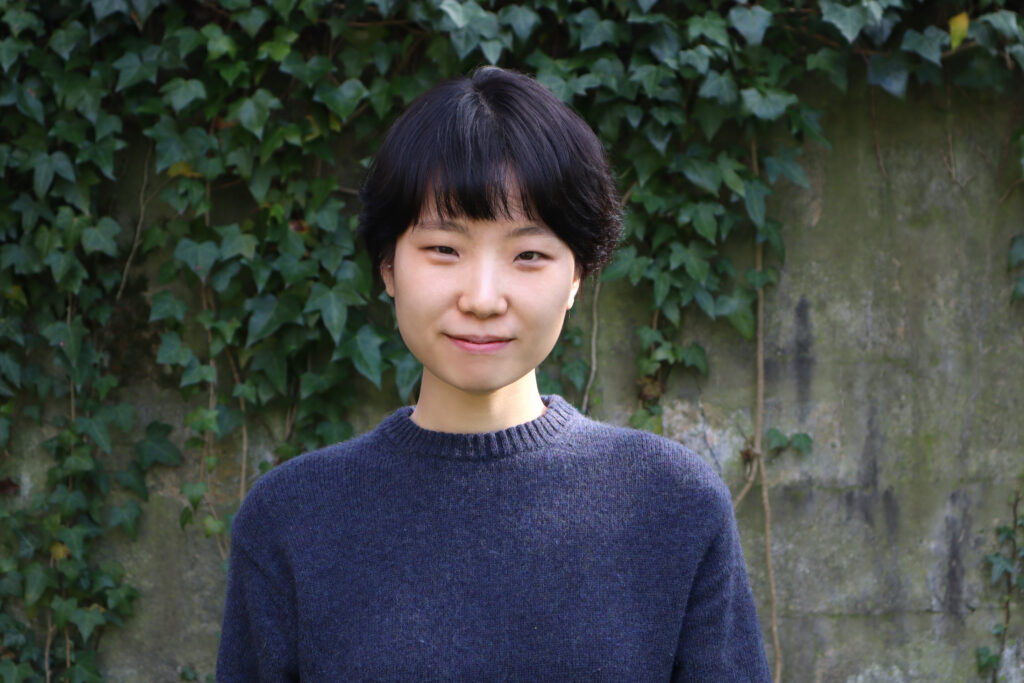
Ju Ly Ban
Lost & Found Archival Research Fellow
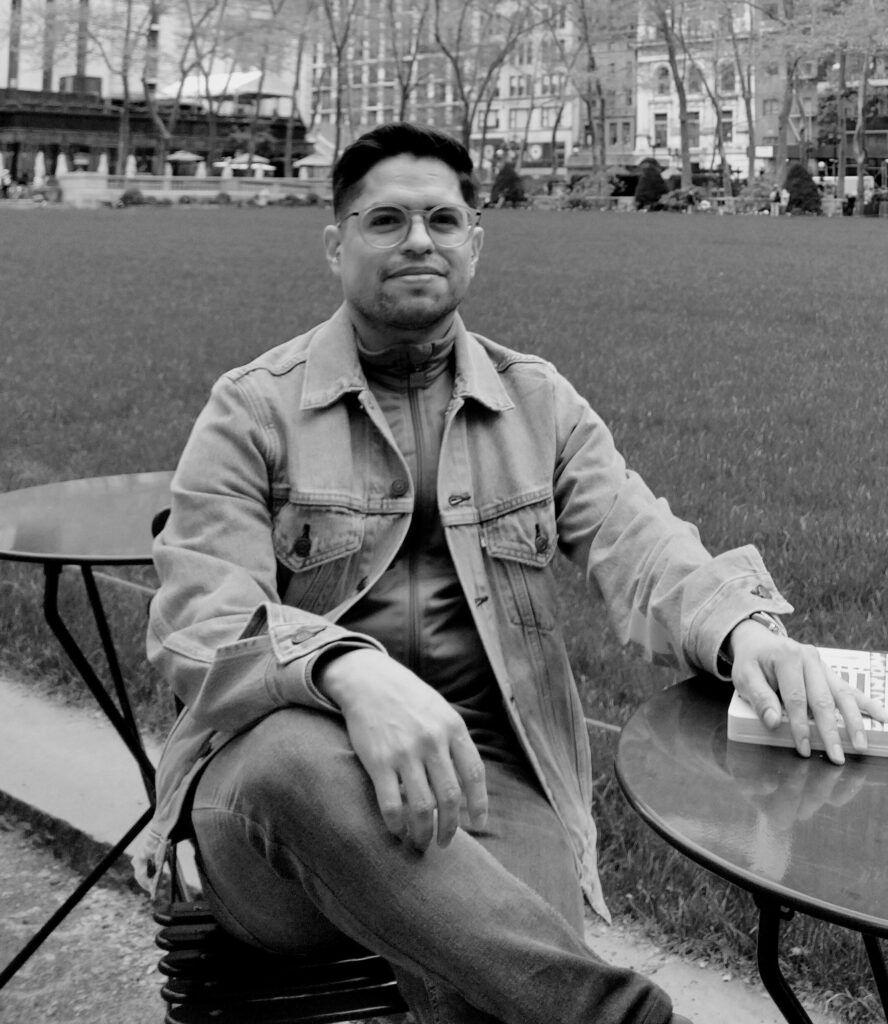
Ernesto Mendoza
Lost & Found Archival Research Fellow
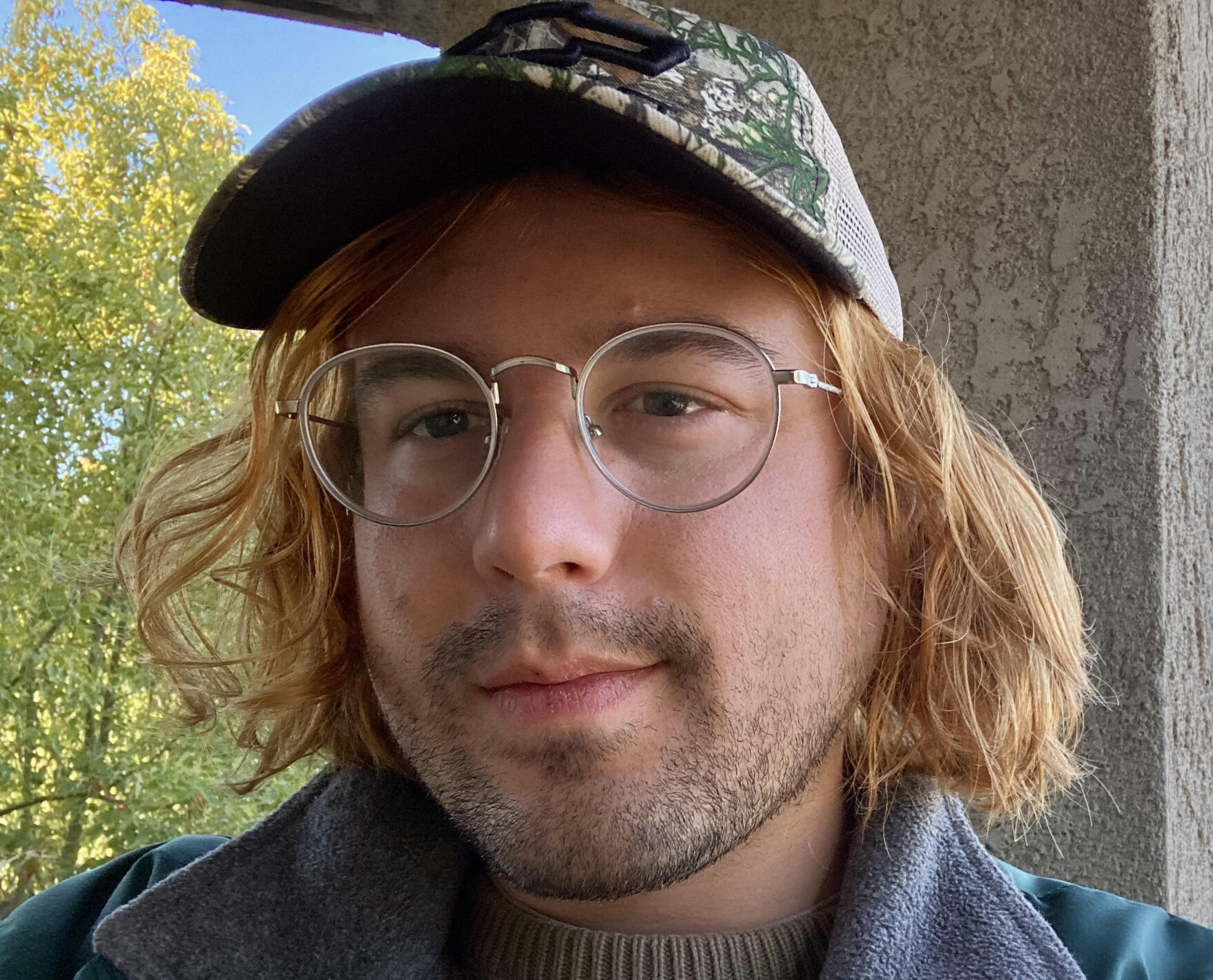
Addy Malinowski
Lost & Found Archival Research Fellow
Related Events
Workshop
What Does a Poem Do to You? Workshop for CUNY Students and Faculty

Conversation
Binding Friendship: Megan Behrent Explores Audre Lorde and Adrienne Rich
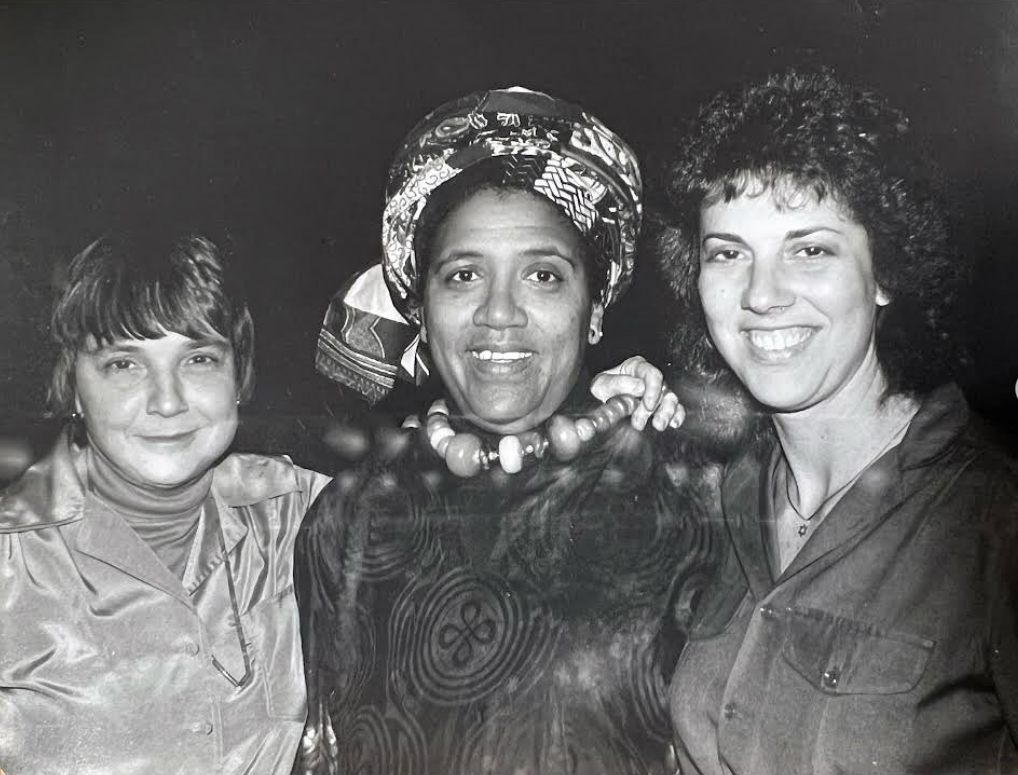
Panel Discussion
The Nuyorican Poets Cafe Founders Archive Project Panel
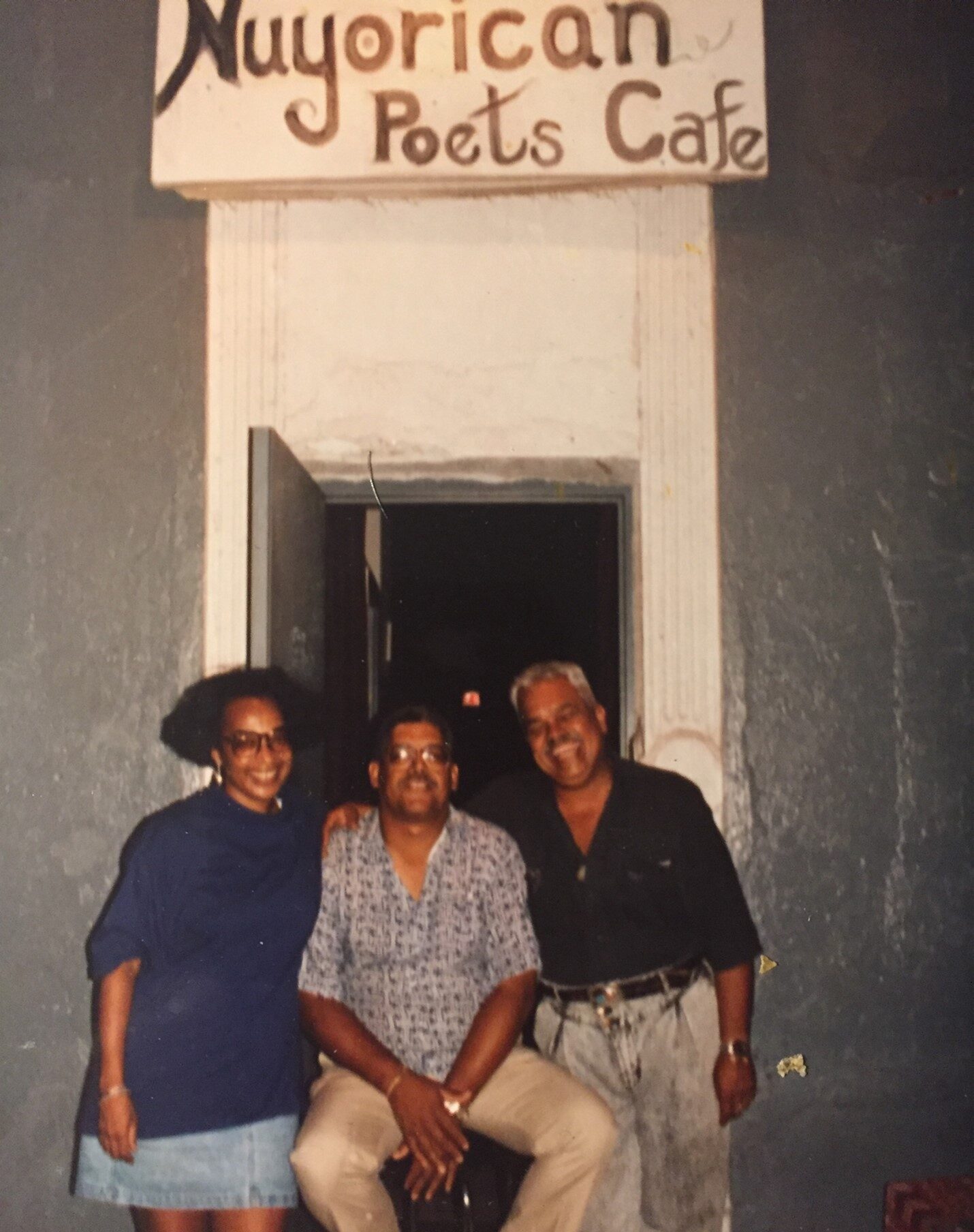
Conversation & Reading
Black and Latinx Studies Afro-Latinidades Symposium Presents: Lois Elaine Griffith

Related Posts
Fellowships, Opportunities & Grants

2026 Lost & Found Archival Research Grants
Distributaries
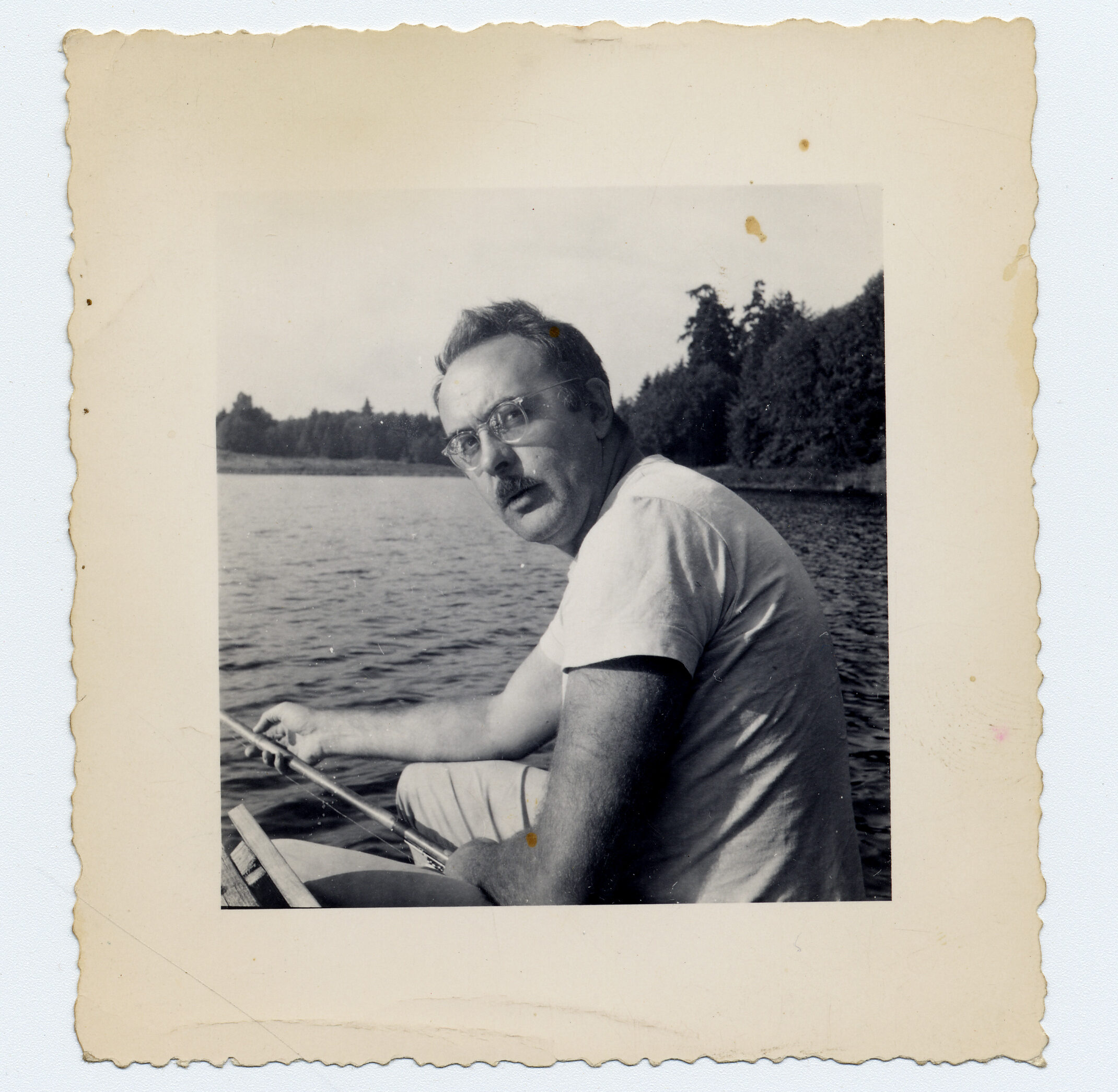
Discovering a Poet: Charles J. Olson’s Key West Experience
Distributaries
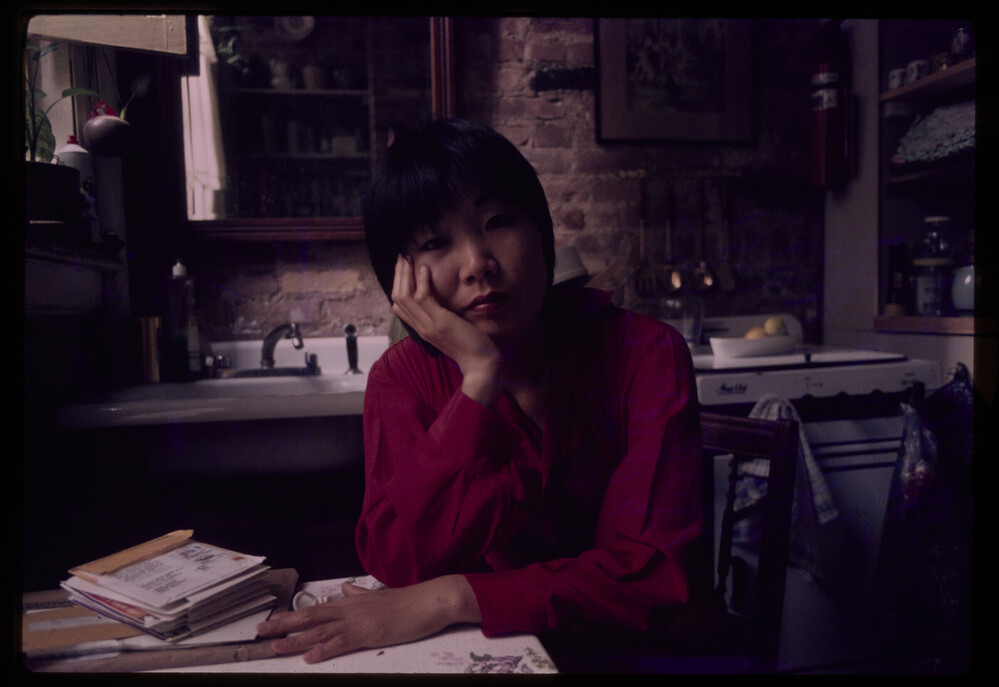
Between Delivery: Letter Threads After the Theresa Hak Kyung Cha Archive (Part I)
Fellowships, Opportunities & Grants
